EL CENTRO EL CENTRO


SPRING 2023 SPRING 2023





www rossanaromero com
ORossana Romero is a Colombian visual artist based in Brooklyn. Her work reflects themes of family, the history of her culture, migration, laws, politics and intimate details of her personal life and relationships, drawing inspiration from works of artists Kehinde Wiley, Beatríz González, and Gabriel García Márquez. Using portraits and landscapes with oil paintings and sculptures, she explores the stories, history, and folk tales of South America and the United States, creating an experience of surrealism and memories She also dives into her own narrative and identity using references of important historical moments that created a domino effect in her life but also in most of the diaspora from Latin America Beyond just a creative process, her work is a result of her spiritual practice, introducing the viewer to her underworld and the offerings she presents to her guides and ancestors. She brings the audience along using symbols like the double headed reptiles, double felines, double shadows, butterflies, parrots, and more Her creative process also is a form of therapy, revisiting memories that became blurry and recreating a home from what she can remember. Even though each piece is completely different from the other, the viewer will find similarities, consistent symbols, and references that affirm place in this home Rossana created
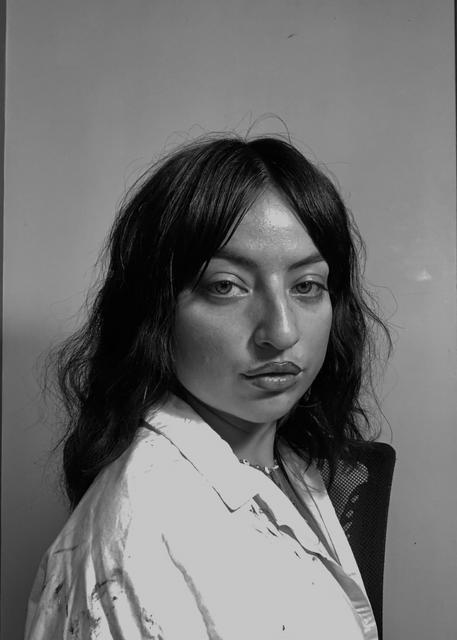
COVER IMAGE:

"La Última Cena"
30 x 40
Oil Painting
2019
‘La Última Cena ’ was painted specifically for the generation of kids in the United States who were born in a different country but were brought to the United States for a better life in a fight to keep their relationship with their culture alive 'La Última Cena’ is the table where we eat, where we gather, where love is present in our mouth and in our stomach Its where both countries collide and all generations of women in our family found unity with the stories of our culture through the food from South America and the taste of our past It is the presence of God through bodies of women
FÉLIX MASUD-PILOTO, IN MEMORIAM FÉLIX MASUD-PILOTO, IN MEMORIAM
LETTERS FROM THE CLR DIRECTOR & LALS CHAIR
LETTERS FROM THE CLR DIRECTOR & LALS CHAIR
CLR ADVISORY COMMITTEE AND LALS FACULTY CLR ADVISORY COMMITTEE AND LALS FACULTY
FACULTY & STAFF ANNOUNCEMENTS FACULTY & STAFF ANNOUNCEMENTS
STRC UPDATES STRC UPDATES
2022-2023 CLR FACULTY FELLOWS
2022-2023 CLR FACULTY FELLOWS
2022-2023: CLR FACULTY FELLOWS SSPOTLIGHT POTLIGHT-
2022-2023: CLR FACULTY FELLOWS
HEATHER MONTES-IRELAND HEATHER MONTES-IRELAND
ARISING: GRASSROOTS WOMEN OF COLOR TAKING POWER
ARISING: GRASSROOTS WOMEN OF COLOR TAKING POWER
40TH ANNIVERSARY OF HAROLD WASHINGTON'S ELECTION
40TH ANNIVERSARY OF HAROLD WASHINGTON'S ELECTION
DEPAUL ART MUSEUM'S CURRENT EXHIBITION DEPAUL ART MUSEUM'S CURRENT EXHIBITION
CLR/LALS EXTERNAL ADVISORY BOARD MEMBERS
CLR/LALS EXTERNAL ADVISORY BOARD MEMBERS
CLR/LALS EXTERNAL ADVISORY BOARD MEMBERS'
CLR/LALS EXTERNAL ADVISORY BOARD MEMBERS'
SPOTLIGHT - SPOTLIGHT - MICHELLE MORALES MICHELLE MORALES
LLALS ALS SSPOTLIGHT POTLIGHT - DELIA COSENTINO - DELIA COSENTINO
PPULSO: ULSO: POESÍA EN ABRIL POESÍA EN ABRIL

HISTORIES OF THE LATINX MIDWEST: A SYMPOSIUM HISTORIES OF THE LATINX MIDWEST: A SYMPOSIUM
DDIÁLOGO IÁLOGO: NEW ISSUE AND 25TH ANNIVERSARY SYMPOSIUM : NEW ISSUE AND 25TH ANNIVERSARY SYMPOSIUM
A CONVERSATION WITH FORMER CLR/LALS A CONVERSATION WITH FORMER CLR/LALS
GRADUATE EDITORIAL ASSISTANT: LAURA PACHÓN
GRADUATE EDITORIAL ASSISTANT: LAURA PACHÓN
HSI UPDATES HSI UPDATES
LALS COURSE SCHEDULE - FALL 2023
LALS COURSE SCHEDULE - FALL 2023
SPRING EVENTS FROM THE CLR & LALS SPRING EVENTS FROM THE CLR & LALS
UPCOMING EVENTS FROM OUR PARTNERS UPCOMING EVENTS FROM OUR PARTNERS
THANK YOU FROM THE EDITOR THANK YOU FROM THE EDITOR
T A B L E
C O N T E N T S
T A B L E O F O F C O N T E N T S




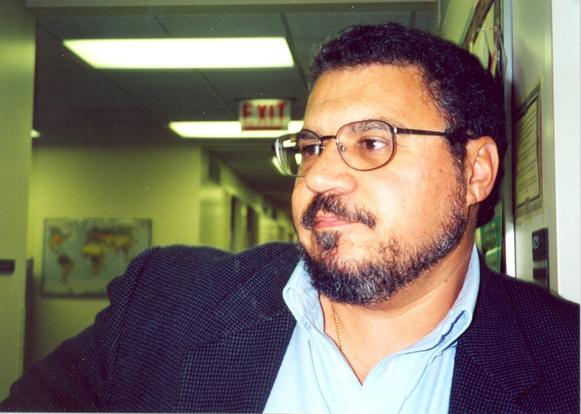
ProminenthistoriananduniversityprofessorFélixMasud-PilotopassedawayatdawnonFriday,March10,2023,attheageof72. Hewasabrilliantintellectualandprofessor,muchlovedbyhiscolleaguesandstudents,internationallyknownforhissharpandaccurate analysesofCubanandUSpolitics.Hereceivedimportantrecognitionsthroughouthisoutstandingcareer,amongwhichthehighest "Distinction"awardedbytheCulturaNacionalCubanain2007standsout
FélixRobertoMasud-Piloto(1950-2023)wasbornandraisedinHavana,CubaHeimmigratedtotheUSinthe1960sDuringhis yearsasauniversitystudentinMiami,Florida,heparticipatedineditingRevistaAeríto,amagazineproducedbyCubanstudentsthat offeredaninnovativepoliticalandsocialperspectiveontheCubanRevolutionandLatinAmericanhistory;avocationthathewould continuelaterwhiledirectingourjournalDiálogo
AfterearninghisPhDinhistoryfromFloridaStateUniversity(1985)hebeganhisteachingandacademiccareerin1990atDePaul intheDepartmentofHistory.In1992,hewaselectedDirectoroftheCenterforLatinoResearch(CLR),apositionthatheassumedand fulfilledwithtenacity.Duringthisperiod,FélixfoundedanddirectedthejournalDiálogountil2009.Heenvisionedaninterdisciplinary magazinewiththemissionofbuildingabridgeconnectingacademiaandthediverseLatinocommunitiesofChicagoandtheMidwest withtherestofthecountryandLatinAmericaInaninterviewconductedbyDiálogoin2017,Félixexplainedhischoiceofthetitle:“It wasreallydifficulttocomeupwithanamethatservedasanumbrellaforamultitudeofissuesandconcerns,whileavoidingthetrapsof focusingtoomuchononeortwocountriesorregionsofOurAmerica‘Diálogo’didallthatIpersonallylikedthenamebecausein Miami,progressiveCubanAmericanswhoadvocatedforadialoguebetweenCubaandtheUnitedStateswerelabelleddialogueros” (151)
In2008,continuinghiscommitmenttostrengtheningcommunityandsocialtiesbetweentheacademicworldandChicago's Spanish-speakingcommunity,heembarkedwithagroupofcolleaguesfromDePaulandmembersoftheContratiempocollectiveto sponsorourpoetryfestival,Poesíaenabril,throughtheCenterforLatinoResearch.PoesíaenabrilisaninternationalSpanish-language poetryfestivalthattakesplaceannuallyinChicagoandnow,15yearsintoitsexistence,hasbecomethemostprominentSpanishlanguageliteraryeventintheUSMidwest.

FélixMasud-PilotohasauthorednumerousscholarlypublicationsonLatinAmericanimmigration,LatinosintheUS,andUSCubanrelationsAmonghisimportantcontributionshisbookFromWelcomedExilestoIllegalImmigrants:TheCubanMigrationtothe US,1959-1995 anessentialhistoricalcontributiononrelationsbetweentheUSandCubathroughoutfortyyearsofthelastcentury standsoutInaddition,hisresearchworkContestingAsylum:Cuba,Peru,theUS,andtheRefugeeCrisisof1980,isafundamental contributiontothehistoricalphenomenonknownastheMarielboatliftandtheimpactithadonUS-CubandiplomacyWithouta doubt,FélixwasapermanentdefenderofafruitfulandmutuallyenrichingrelationshipbetweentheintellectualcommunitiesofCuba andtheUS,andatirelesscollaboratorwithCubanculturalinstitutions,suchas“FundaciónNicolásGuillén”,the“UnióndeEscritoresy ArtistasdeCuba”(UNEAC)and“CasadelasAméricas”,amongothers.

Continuingwithhiscommitment,asahistoryprofessor,todisseminateknowledgeandpromotelinksbetweenCubaandtheUS, Félixcreatedastudyabroadprogramin2003,togetherwithMarketingProfessorLuisLarrea,titled“CubanRealitiesinaChanging World”InthisprogrambothprofessorsbroughttogetherstudentsfromDePaul'sCollegeofLiberalArtsandSocialSciencesandthe CollegeofBusinessforthepurposeofexaminingaspectsofthesesocietiesfrommultipleperspectivesandwiththeintentionof introducingDePaulstudentstothehistory,culture,economy,andpoliticsofCubabeforeandafterthe1959revolutionthatradically transformedCubansocietyanditspoliticalandeconomicrelationswiththeworldForFélixitwasveryimportantthatDePaulstudents hadtheopportunitytointeractandmeetstudents,professors,legislators,artists,andCubancitizens,notonlyinthecapitalcityof Havana,butalsoincitiesofgreatimportanceintheinteriorofCubaforCubanhistoryandculturesuchasSantaClara,Matanzasand PinardelRío.Overtheyears,morethan350DePaulUniversitystudentshavebenefitedfromthepossibilityofauniquelearning experienceinCubaundertheleadershipofFelix.HislasttripwithDePaulstudentswaslastsummer,in2022.
Withalltheseinitiativesthathedevelopedthroughouthisacademiccareer,FélixMasud-Pilotosawthepossibilityofdecolonizing criticalthinkingaboutthepoliticalandsocialrelationsbetweenhisbelovedandalwayslongedforCubaandtheUnitedStates,aneffort towhichhededicatedmostofhisworksandreflections
TheeditorialcommitteeofDiálogodeeplyregretsthedeathofitsfounderandcommittedintellectual

Chicago,March11,2023
WorksCited
“EarlyVisionforDiálogo(andInfluencefromAreíto):AnInterviewwithFélixMasud-Piloto.”Diálogo,vol.20,no.2,2017,pp.149–155. https://doi.org/10.1353/dlg.2017.0042.
SientotristezamientrasescriboparadespediramiqueridocolegayamigoelDrFélixRobertoMasud-Piloto,quiennacióen LaHabana,Cuba,el6dediciembrede1950,yfallecióel10demarzode2023enChicago,EstadosUnidos
ConsutítulodeDoctorenHistoria,otorgadoen1985porFloridaStateUniversity,FélixMasud-PilotollegóaDePaul Universityenelaño1990TeníaexperienciadocenteporhaberenseñadoenlaUniversidaddeCornell(Ithaca,NY),entreotras EntróalDepartamentodeHistoriacomoprofesorasistente,en1992solicitóyobtuvolapromociónaprofesorasociado(regular)y enel2004solicitóyobtuvolapromociónaprofesortitular.Luegodejubilarseenel2019,fuenombradoprofesoremérito.Entre 1992y2009fuedirectordelCenterforLatinoResearch,desdeelcualen1996fundólarevistaDiálogo
SunombramientoiniciallerequeríaofrecercursossobreLatinosenEstadosUnidos,peroalcrecercomodocenteFélixse expandió,desarrollandounagranvariedaddecursosdepregradoyposgradoqueenseñabaparaalumnosdeHistoriaydeotros departamentosyprogramasdelauniversidadDurantecasitreintaañosenseñóHistoriadeAméricaLatina(sigloXX),deAmérica Central,delCaribe,deCuba,RevolucionesSocialesenAméricaLatina,Migraciones,RelacionesentreEstadosUnidosyCuba,y CineeHistoriaLatinoamericana.
Félixvinculósusinquietudesacadémicasconladurarealidadhistórico-socialdeAméricaLatina,yabriólaspuertasdelaulapara guiarasusestudiantesenesarealidad.FrutodeesaaperturafueroncursosqueincluíanviajesdeestudiosaCuba,Argentina,y ChileDesdeel2003hastaquesejubilóenel2019,yaúndespuésdejubilarse,condujoaproximadamente19programasdeestudios enelextranjeroCompartióestosprogramasconsusqueridoscolegas:elProfesorLuisLarrea(recientementefallecido),ylas profesorasJuanaGoergen,RocíoFerreira,yJacquelineLazúMásde350estudiantesviajaronenmúltiplesitinerariosy combinaciones.Añosdespuésdehabersegraduado,estosestudiantessiguencomentandoelimpactoquetuvieronlosviajesensu formaciónuniversitaria

LacarreradeinvestigacióndeFélixfuemuyprolífica.Publicólibroscomoautorycomoeditor,trabajandosolooen colaboración,escribiendoencastellanoyeninglésEntreellossedestacasuestudiosobreinmigracióncubanaaEstadosUnidos, tituladoFromWelcomedExilestoIllegalImmigrants:TheCubanMigrationtotheUS,1959-1995 Contribuyóenlibros,revistas,y enciclopedias.Evaluómanuscritosinéditos,presentóeneventosacadémicos,ydioconferenciascomoinvitadoespecial.Integró comitéseditorialesderevistas,entrelascualesquieromencionarDiálogoyCubanStudies,ycomitésdetesisdemaestríay doctoradoComotodoprofesor,participóencomitésdepartamentales(incluidoelcomitédeselecciónquemecontratóamí)yen comitésdelauniversidadAntesdejubilarsedirigiólaMaestríaenHistoriaTambiénparticipóenentidadesdeproyección internacionalcomoCasadelasAméricasyLatinAmericanStudiesAssociation(LASA),yenlaorganizacióndeeventoscon invitadosdegranrelevanciacomo,porejemplo,cuandolosprofesoresMasud-PilotoyGoergeninvitaronaDePaulaRigoberta Menchú,PremioNobeldelaPaz,yduranteesavisitaMenchúrecibióunDoctoradoHonorisCausa


LalabordeFélixsenotódentroyfueradelaacademiaEnelaño2007,elMinisteriodeCulturadelGobiernodeCuba reconociósusesfuerzosenfavordelacercamientoentreCubayEstadosUnidos,ylocondecoróconlaMedalladeDistinciónporla CulturaNacional Yenel2020,DePaulUniversityleotorgóladistinciónViaSapientiae
Enlopersonal,conocíaFélixjuntoconlosprofesoresJuanMora-TorresyRoshanaSylvesterCorríaelaño2007,habíauna plazadisponibleenelDepartamentodeHistoria,ellosintegrabanelcomitédeselección,yyosolicitéelpuestoSiempremehabían dichoquelaamistadentregentedeCubaydeArgentinaerasencilla,divertida,yprofunda;todoalavez.Locomprobéalaceptar eltrabajo,cuandomehiceamigadeFélixydesuesposa,laprofesoraMaríaMasudEnlaoficinalapuertasiempreabiertapara quienquisierauncafecitoFélixeraconversadoryopinabasinpelosenlalengua,comoélmismodecíaEstudiantesdedistintas generacionespasabanacontarsusaventuras.LomismoencasadelosMasud,donderecibíanacolegasyamistadesdelmundo entero,enunambienteanimadoconmúsica,comida,bebidas,ycarcajadas.TodoiluminadoporlaextraordinariacalidezdeMaría yFélix
Lasdespedidassiempresondifíciles,yestaspalabrasescritasatítulopersonalnosonunaexcepción.Paraterminar,creohablar ennombredetodoelDepartamentodeHistoria,profesoresyadministradores,cuandodigoquelovamosaextrañarmucho
Chicago,21demarzo,2023.




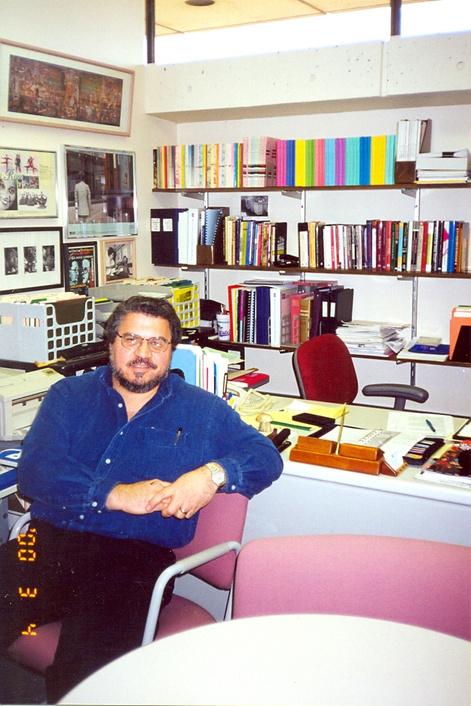

As the current director of the Center for Latino Research, I want to acknowledge the great debt that the CLR owes to our colleague, Dr Félix MasudPiloto, who passed away earlier this year. Félix left an indelible impact on us as his colleagues and friends, and his innovative leadership of the Center for Latino Research forms a legacy that will long be remembered. Felix directed the CLR for 17 years –from 1992 to 2009. During this time, Felix founded or helped to found many of the signature elements of the CLR. Our journal Diálogo, for example, which Félix created in 1996, is publishing its 25th anniversary volume this year. Our annual Faculty Fellowship Program, which Félix established in 2003, is celebrating its 20th anniversary. Felix was a visionary leader who had the magic gift of bringing people together; he supported students and colleagues in their work and created bridges between DePaul and communities beyond the university He will be deeply missed
As we wrap up the academic year, we should also look back over this year ’ s major achievements
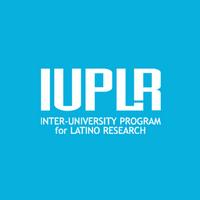
Congratulations to our new STRC faculty fellows –Rocío Ferreira and Juan Mora-Torres received fullyear fellowships, and Maria Ferrera and Jacqui Lazú received six-month professional development fellowships. Congratulations as well to our new cohort of STRC graduate and undergraduate student fellows! Finally, we hope you will join us in celebrating the work of Delia Cosentino, Rose Spalding, and Carolina Sternberg and the publication of their new books! We’re holding a reception on May 11th.
- Bill Johnson GonzálezEstimades lectores! Espero que se encuentren muy bien y disfrutando de los ratos de sol y de más calor que Chicago lentamente nos ofrece Este es el segundo newsletter del año que el Departamento de Estudios Latinoamericanos y Latinos lanza junto con el Centro de Estudios Latinos y estamos muy contentos de continuar con esta colaboración.
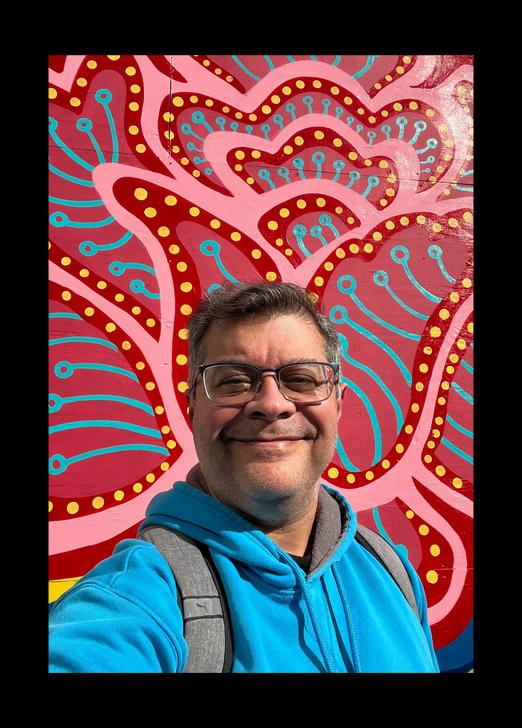
Me gustaría comentarles también que recientemente el Departamento ha incorporado dentro de su cuerpo de profesores a la Doctora Yoalli Rodríguez Aguilera como Assistant Professor. Yoalli está especializada en decolonialidad, racismo medio ambiental en las comunidades indígenas de Oaxaca y afro-latinidades entre otros temas. Ella comenzará a dar clases a partir del otoño del 2023. Muy pronto haremos llegar más detalles de las clases que ofrecerá en el próximo año académico
Finalmente, quería anunciarles que el 11 de mayo, junto con dos profesoras afiliadas al Departamento de Estudios Latinoamericanos y Latinos, haremos una presentación conjunta con motivo de la publicación de nuestros respectivos libros: Breaking Ground: From Extraction Booms to Mining Bans in Latin America (Rose J Spalding); Resurrecting Tenochtitlan: Imagining the Aztec Capital in Modern Mexico City (Delia Cosentino y Adriana Zavala) y Neoliberal Urban Governance: Spaces, Culture and Discourses in Buenos Aires and Chicago (Carolina Sternberg). Ojalá puedan acompañarnos el 11 de mayo a las 4:30pm en el aula 102 del edificio Arts and Letters.
Esperamos que nos sigan leyendo aquí y estamos a su disposición por cualquier pregunta que tengan.
- Carolina SternbergMission Statement
The Center for Latino Research (CLR) strives to open and sustain dialogues which foster the empowerment and advancement of Latinx communities To that end, the CLR creates learning opportunities for students and supports scholars in their research, while forging collaborative relationships with local, national, and international research partners We also publish an award-winning scholarly journal, Diálogo, and sponsor many activities on campus, including film series and speaker series
Marisa Alicea, Professor School of Continuing and Professional Studies
Carolina Barrera Tobón, Associate Professor
Modern Languages
Jacqueline Lazú, Associate Professor Modern Languages & Associate Dean College of Liberal Arts & Social Sciences
Martha Martinez- Firestone, Associate Professor and Director of Undergraduate Program Sociology
Julie Moody-Freeman, Associate Professor African and Black Diaspora Studies
Elizabeth Ortíz, Vice President Office of Institutional Diversity and Equity
José Perales, Director of Operations Office of Institutional Diversity and Equity
Rose Spalding, Professor Political Science
Joe R. Tafoya, Assistant Professor Political Science
Ionit Behar, Associate Curator DePaul Art Museum
Carolina Sternberg, Associate Professor & Chair
Latin American and Latino Studies, Critical Ethnic Studies
Lourdes Torres, Professor
Vincent de Paul Professor
Latin American and Latino Studies
Jesse Mumm, Professional Lecturer
Latin American and Latino Studies, Critical Ethnic Studies
Meloddye Carpio Ríos, Social Transformation Research
Collaborative (STRC) Post-Doctoral Fellow
Latin American and Latino Studies
MarisaAlicea, Professor School of Continuing and Professional Studies
LuiselaAlvaray, Associate Professor Media and Cinema Studies
GlenCarman, Associate Professor Modern Languages & Spanish Program Director
DeliaCosentino, Associate Professor History of Art and Architecture
RocíoFerreira, Associate Professor
Modern Languages & Department Chair of Women's and Gender Studies
BillJohnsonGonzález, Associate Professor
English Department & Director of the Center for Latino Research
JacquelineLazú, Associate Professor
Modern Languages & Associate Dean College of Liberal Arts & Social Sciences
MarthaMartinez-Firestone, Associate Professor
Sociology & Director of Undergraduate Sociology Program
SusanaS Martínez, Associate Professor
Modern Language & Director of Peace, Justice & Conflict Studies Program
ElizabethMillán, Professor & Chair
Philosophy
JuanMora-Torres, Associate Professor History
HeatherMontes-Ireland, Assistant Professor Women's and Gender Studies
XavierPerez, Professional Lecturer
Criminology & Director of the Criminology Program
MonicaReyes, Assistant Professor Writing, Rhetoric and Discourse
AnaSchaposchnik, Associate Profesor History
JoseSoltero, Professor Sociology
SoniaSoltero, Professor & Chair
Leadership, Language and Curriculum
RoseJ Spalding, Professor Political Science
JoeR Tafoya, Assistant Professor Political Science
ChristopherTirres, Associate Professor Vincent de Paul Professor of Religious Studies & Inaugural Endowed Professor of Diplomacy and Interreligious Engagement Religious Studies
Delia Cosentino is pleased to announce the release of her latest book, Resurrecting Tenochtitlan: Imagining the Aztec Capital in Modern Mexico City, co-authored with Dr Adriana Zavala (Tufts University), and published by University of Texas Press (Spring 2023).
Abstract: The book explores how and why artists, intellectuals, and government officials attempted to revive the Mexica capital as part of a reassessment of post-revolutionary national identity. We describe these processes as a conceptual excavation of Tenochtitlan with a distinct urgency to explore the capital’s deep layers as a response to the rapid industrialization and expansion of the city, starting in the first half of the 20th century. In the midst of looming threats to scarce traces of the capital’s native origins, archaeologists scrambled to identify fleeting material remains, art historians studied historic maps, and artists designed murals to capture a sense of the Mexica urban past in the present. All of these efforts naturally reinforced a state-driven project to promote a shared national identity under the umbrella of mestizaje, now spatially bound to Tenochtitlan and to the hybrid Spanish city seated on top This was therefore a complex construction of a fresh identity for Mexico’s capital in the first half of the twentieth century a process that in many ways continues to this day.
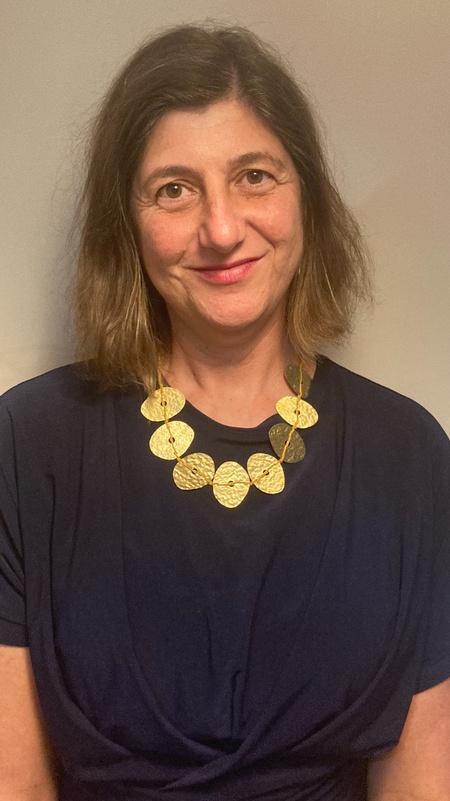
Dr. Perez recently published and article, "COVID 19 and Public Safety: A Study of Community Resiliency"
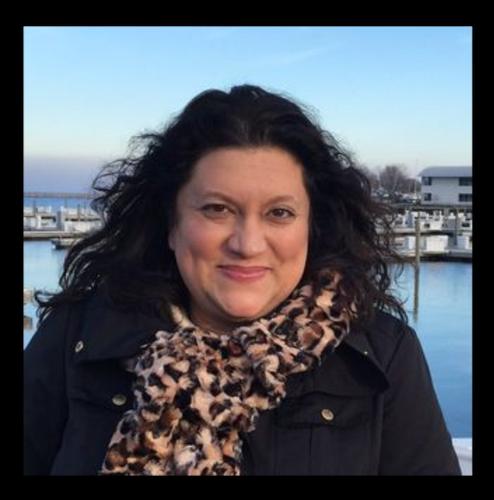
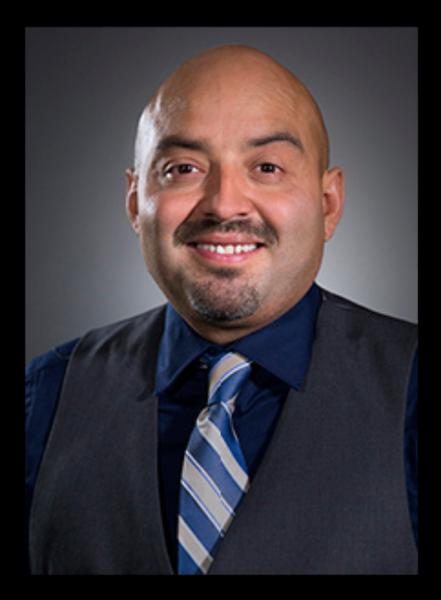
Abstract: The existing literature on community resiliency and more recently COVID-19 and public safety suggests that community contextual factors are important to our understanding why some communities fared better than others during the pandemic The complexities regarding COVID-19 have led some to call for a national research program to understand how the pandemic affects crime and shapes public safety responses (Miller & Blumstein, 2020) Studies that examine local context and the impact of the pandemic on non-governmental agencies must be included in this agenda as they provide a notable portion of violence and recidivism reduction occurs through community-based, non-governmental agencies (Sharkey, 2018). The abilities of these agencies to weather large-scale events while supporting community well-being and public safety efforts is therefore important to not only understanding the differential impact the pandemic had on neighborhoods but to identifying strategies to better prepare communities for future large-scale events Based on qualitative interviews with community-based violence prevention and intervention programs and community members, this study examines community context and its relation to public safety during the pandemic in a Latinx community in a large Midwestern city Specifically, the study explores the unique challenges faced by community-based agencies working within a Latinx community during a time of heightened social isolation where residents also experience language barriers, fears associated with immigration status, the immigrant journey and resulting complicated health outcomes, and/or high rates of poverty and crime The findings highlight lesson learned as community agencies and resident adapted to the challenges of COVID-19 The findings offer policy suggestions to better equip community agencies and residents to better prepare for large scale crises
After many journals experienced publishing timelines disrupted by the pandemic, Dr. Heather Montes Ireland is happy to announce that her article, ""She's Been Doing Everything Right:" Mothers of Color and Economic Violence" was published in the journal Women, Gender, and Families of Color (vol 10:1) in March 2023 This article explores the ways that Black and Latina low-income mothers experience compounded harm via the confluence of withdrawal of U S anti-poverty assistance and the criminalization of racialized motherwork Additionally, her book review of Intersectional Chicana Feminisms: Sitios y Lenguas, by Aída Hurtado, was published in the recent issue of Diálogo (vol 24:2)
The Center for Latino Research and the Department of Latin American and Latino Studies would like to welcome our newest Student Assistant, Josué Paniagua. Josué was born and raised in San Antonio, Texas, and moved to Chicago to attend DePaul University. He is currently a Junior majoring in Film and Television but is interested in graphic design in areas such as 3-D modeling and animation. He was recently selected to be a featured Latine artist in Tepeyac's Sixth Annual SOMOS Latine Art Festival and hopes to continue to be able to share his work with others.
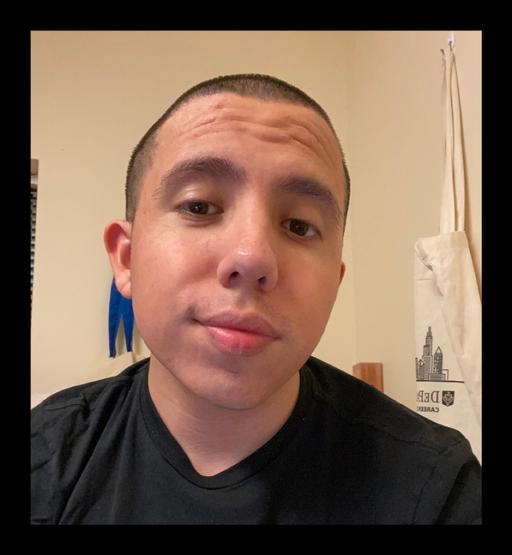
The Center for Latino Research and the Department of Latin American and Latino Studies would like to welcome our new Graduate Student Assistant, Sunidhi Kulkarni. Sunidhi, a UX designer by profession, was born and raised in India and is fueled by her passion for designing exceptional user experiences With an undergraduate degree in user experience design and two years of experience in the design industry as a lead UI/UX designer, she has demonstrated her expertise in the field and believes to create designs that influence emotional engagement and usability Currently pursuing her master's in Human-Computer Interaction, Sunidhi was recently selected to work at the Innovation Development Lab at DePaul University as a UI/UX designer Beyond her work, she loves expressing herself through dance, music, and creating one-of-a-kind artwork
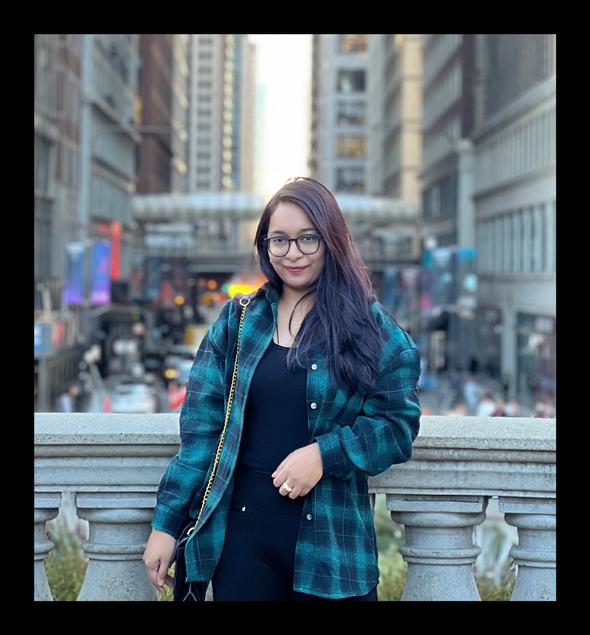

From Program Coordinator for the Social Transformation Research Collaborative, Alejandra Delgadillo
The Social Transformation Research Collaborative (STRC) is in its second year with a new theme: Stories for Racial Justice and Healing.
We are happy to share that the second iteration of our Summer Institute for New Students is underway, and it will be co-taught by Dr. Michele Morano (English) and Dr. Tara Betts (The Theatre School). We are preparing to welcome our students on Sunday, July 16th, to settle into their dorms and begin the program on July 17th until the 21st.
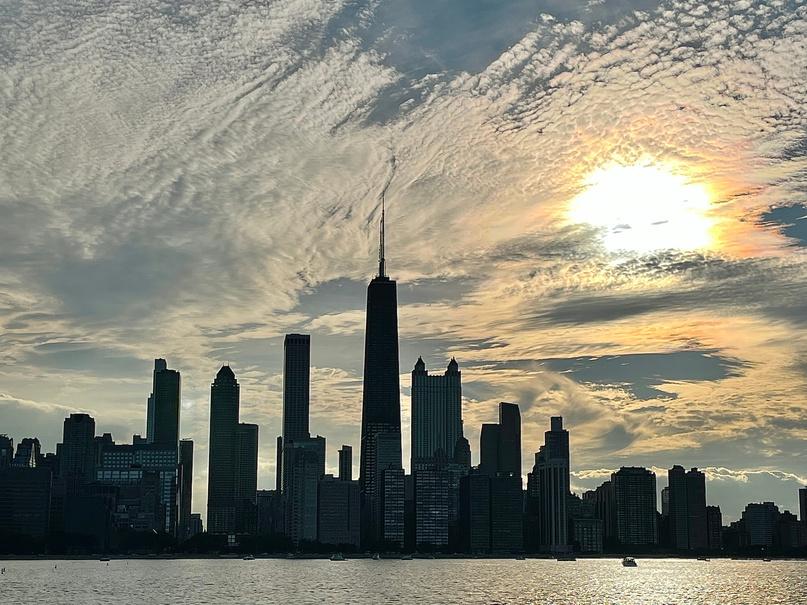
We would like to congratulate the recipients of the 2023-2024 Faculty Research Fellowship:
Dr. Rocío Ferreira (Modern Languages), “Women Shoot: Poetics of Political Violence in Contemporary Peruvian Culture”
Dr. Juan Mora-Torres (History), “Mexicans in Babylon: Barrio Making in Chicago’s West Side, 1917-1983”
As well as the recipients of the 2023 Professional Development Fellowship:
Dr. Maria Ferrera (Social Work), “Journey to Safety and Belonging: Narratives of Asylees”
Dr. Jacqui Lazú (Modern Languages), “Archival Collection Development and Management”
The STRC is also excited to announce that the six recipients of our first-ever Undergraduate Research Fellowship (SURF) have been selected, and they will be working alongside Dr. Ashley Stone (African and Black Diaspora Studies) and Dr. Lisa Poirier (Religious Studies) during the fellowship period
Our undergraduate fellows are:
Gabriela Córdova, English
Jael Davis, History, African and Black Diaspora Studies
Laszlo Katona, Philosophy, History, Environmental Science, German Studies
Krystal Morgan, African and Black Diaspora Studies, Public Policy
Lila Nambo, Latin American and Latino Studies, Film Production
Samara Smith, Political Science, History
The fellows will receive a $5,000 stipend each and take a tuition-free, credit-bearing humanities research methods course during the Summer I term, co-taught by Dr. Stone and Dr. Poirier. They will continue to develop their projects throughout the Fall 2023 term and present their research at our annual fall symposium.
Speaking of our fall symposium, this year it will take place on Thursday, October 19th, so please save the date! In alignment with our 2023 theme and relevant to current issues, the title for the symposium is “The Right to Story: Race, Gender, and Sexuality in an Age of Banned Books.” We will hear from this year’s graduate and undergraduate student fellows, the 2023 Summer Institute cohort, and our 2022-2023 faculty fellows: Dr. Susana Martínez (Modern Languages), Dr. Chernoh Sesay, Jr. (Religious Studies), Dr. Lori Pierce (African and Black Diaspora Studies), and Dr. Lourdes Torres (Latin American and Latino Studies). Our keynote speakers will be announced in the coming weeks, so stay tuned for more information.
For more information please contact STRC Coordinator Alex Delgadillo
a.delgadillo@depaul.edu
HEATHER MONTES-IRELAND
Assistant Professor | Dept of Women’s and Gender Studies
“Decoupling Work and Dignity in Latina Visual Culture”
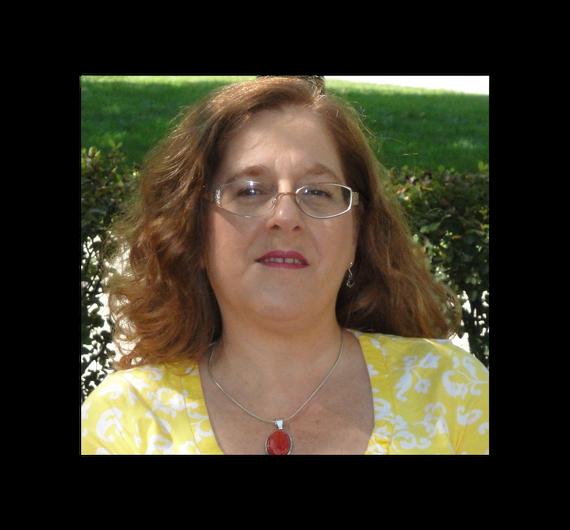

ANA SCHAPOSCHNIK
Associate Professor | Dept. of History
“Did the Holy Office Leave Room for Agency?: The Trial of Faith of FranciscoVázquez(Lima,1600s)”
MONICA REYES
Assistant Professor | Dept. of Writing, Rhetoric and Discourse
"Shelter Rhetorics: Storytelling within the U.S. Asylum Process”
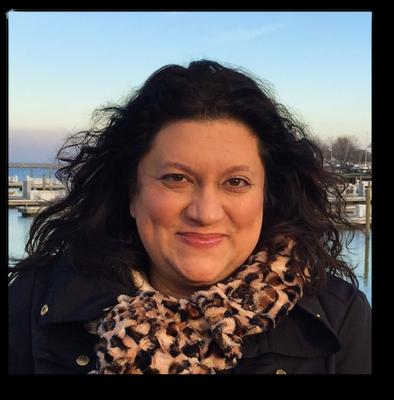
Dr. Heather Montes-Ireland is an Assistant Professor of Women’s and Gender Studies and affiliated faculty in Critical Ethnic Studies and Latin American and Latino Studies at DePaul University. She studies race, gender, class, and sexuality in global economic, finance, and labor systems through interdisciplinary and intersectional methods. Dr. Montes-Ireland’s research and teaching interests include transnational and women of color feminisms, intersectional economic justice movements, racial capitalism and the global economy, queer of color critique, and Latina/Chicana/Boricua studies. Dr. Montes-Ireland is currently working on her book manuscript that examines the cultural formation of entrepreneurialism and practices of global finance as these bear upon the lives of women of color in the U.S. and transnationally. She recently published the article ""She’s Been Doing Everything Right:" Mothers of Color and Economic Violence" in Women, Gender, and Families of Color vol. 10 (1).
Interview conducted by Josué Paniagua
The topic of your fellowship project, “Decoupling Work and Dignity in Latina Visual Culture,” sounds fascinating. Can you please tell me a little bit about the project?
It was really to work specifically on a chapter for my book, for my monograph. The chapter is about the concept of dignity. Thinking about human dignity specifically as it impacts Latine and Latinx communities, particularly in the U.S. I’m looking for texts out of visual culture or film texts that are by and for Latina viewers and feature Latinas, which, you can imagine, are too rare.
In addition to your own experience as a Latina, what part of your work resonated with you the most?
Before I even got to know that much about the amazing history of my ancestors, I had always heard that Latinos come to the U.S. to take wealth. This is a powerful narrative. There were people in my family that were economically insecure, single mothers in particular, and in general people without a lot of economic
resources I couldn’t understand why there should be shame or stigma in getting to be able to feed your children, getting food stamps. This is really always falling on the bodies of women of color, the bodies of Latina, Black, and Indigenous women. I really wanted to understand why women of color in particular were being demonized and that is really at the heart of my work.
I’m interested in human dignity for several reasons. One of the biggest being that so often politicians and people in the mainstream who have power, who are typically not from communities of color, are ultimately saying: “To claim your dignity as a poor person, low income person, working class person, person of color, you need to work for it. You need to work for your dignity.” This has led me to conversations and research, thinking about the way that Latine and Latinx communities think about work generally and how we are pegged as workers. The brown
body is a labor body. At the same time, Latinx communities also participate in these narratives in a particular way And it makes sense because it is a way of trying to claim a place in this society. At the same time, why do have to make that claim? Why, before our humanity can be seen or acknowledged, do we have to be able to do something for the person who’s in power?

Which films have you been able to explore in your research?
One of the films I look at is called Mosquita y Mari, directed by Aurora Guerrero. She is a feminist from the L.A. area and it really shows in her film. In it, we see two young Chicanas as well as their families struggling in their own ways. There’s these tensions that show both of their moms having their own dreams but we don’t really get to see them.
These films are showing us that human dignity is much more complex and beautiful than what is often allowed by mainstream political discourse for Latina workers, and particularly, Latina moms. What has been amazing to me is to see similar themes come out of these films as well as very different stories. That’s often what researchers are looking for when writing, to see what brings this archive together
What has your experience been exploring this archive?
One of the issues that does come up for me working in this field is what I term economic violence. It is certainly sobering and often painful to experience, in some ways, the vicarious trauma the subjects of my research are experiencing. So for me, there’s two things that I typically hold on to One is that it is my duty, in a way, and an honor to retell the stories and to highlight these
lives. Then, I can offer insight for folks to help them understand more about these lives. Part of what I am trying to do here is bring these elements of the humanities and visual culture together so that we can think about issues within political economy and policy. Usually, the folks that are in economy and policy are economists and political scientists. This is another part of why I’m writing this particular chapter too, which is to say, if we look at the visions and the envisioning of Latina creators about Latina lives, it's going to reflect very differently on the ways we think about policy and politics. We need to look at these other sites. We need to look at the sites of cultural creation, cultural production, film, and other types of culture that folks from our community are making to see the ways they are envisioning more inhabitable worlds. That is where we’re going to find the inspiration to create the kind of world we want to live in.
We have seen the violence that migrant and undocumented women experience. There are definitely issues that come directly from the policies that we have in the U S And it doesn’t need to be this way At the end
The brown body is a labor body.
of the day, the hope is to influence policy because it’s helping people change their minds
How has this kind of work influenced your pedagogy, specifically pertaining to your students?
I’m interested in student reactions to these films because sometimes their reactions are both disconcerting yet sobering. It’s also amazing because if a student is telling me they have never seen that before, they have no idea what is going on out there in the world, in this country, then this is so necessary. Necessary for our democracy. For young people to be able to see and understand that “human beings deserve dignity” It opens up entire ways of being able to relate to other human beings when you can see and experience and know their stories. This is why I also continue to keep doing this work, exposing more people to these texts and these films.

Do you have any more recent or upcoming work you’d also like to share?
I recently published a piece in the University of Illinois Press on economic violence. It’s a piece called “She’s Been Doing Everything Right: Mothers of Color and Economic Violence.” I would love to highlight that work because it has been so important to me. I’ve worked a long time on it and it is a different type of work In that piece, I look at a variety of case studies where I cross historical moments. I start with highlighting the police killing of Eula Mae Love in 1979 She was a black, widowed mother I connect that to how Black and Latina single mothers experience economic violence today.
I have another article that will be coming out soon where I’m writing about the decoloniality of Boricua feminism. I’ve also been able to finish that piece because of my time with CLR in the fall. I would just like to share the power of the humanities. I hope that people really think about that within marginalized
communities and how important our cultural work is, our cultural productions, to be able to theorize from and to change the world And I think I want to take that very seriously and change that with others
At the end of the day, the hope is to influence policy because it’s helping people change their minds.
Do you have any closing thoughts?
At the end of the day, this is what we’re all trying to do That’s what theory is too When we think about critical theory, critical ethnic studies theory, Latine/x theory, feminist theory, it’s really about trying to problem-solve for our lives. To be able to create solutions to human problems It’s not something that should stay in the academy. It should be something that we are able to apply in order to help our communities and just help ourselves. Sometimes to literally just see ourselves open up to more ideas and understand why
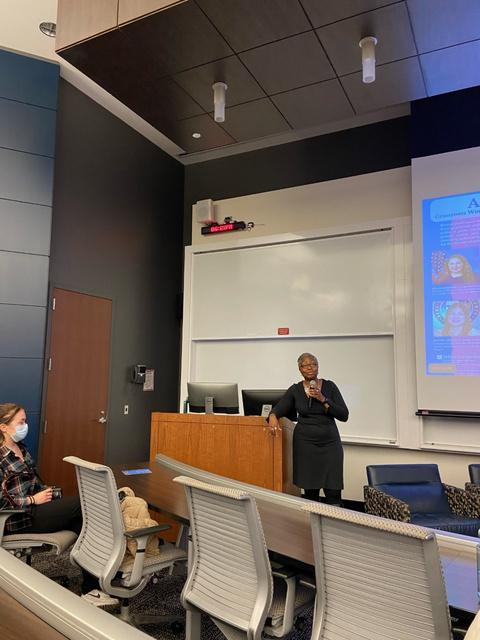 by Laura Pachón
by Laura Pachón
On Thursday, February 16th, DePaul University’s Department of Latin American and Latino Studies had the honor of hosting four amazing women of color who have been working hard to take back political power in Illinois. The event, ARISING – Grassroots Women of Color Taking Political Power, was moderated by Yareli Cortez and Claudia Peralta Acevedo. The panelists included four inspiring women: Delia Ramírez, Congresswoman for the 3rd District of Illinois, a Guatemalan American and the first Latina to represent the Midwest in Congress; Lakesia Collins, Illinois State Representative for the 9th District, representing North Lawndale, the Near West Side, and Old Town; Josina Morita, Cook County Commissioner for the 13th District, the first Asian American woman on the Cook County Board; and Lilian Jiménez, Illinois State Representative for the 4th District, a Puerto Rican and Mexican woman representing Humboldt Park and the Near Northwest Side.
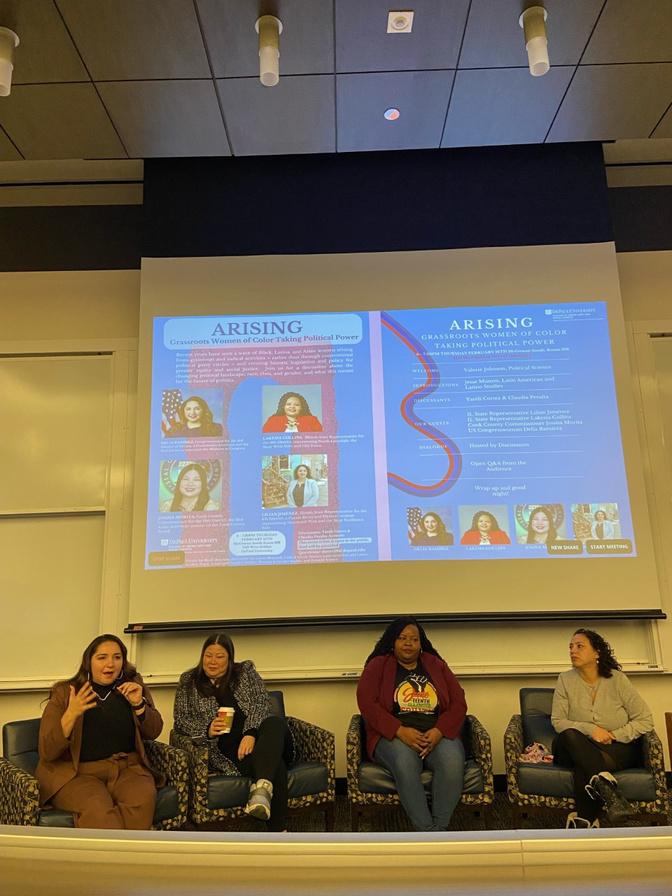
Yareli and Claudia did a wonderful job at guiding
the conversation and engaging the audience as well The event was attended by a diverse audience that almost filled up the room. We got insight on how these women ended up in their positions. Congresswoman Delia Ramírez shared her journey; she started out as a case manager at an organization that served migrants and worked her way up to becoming the executive director. This was followed by her colleagues and friends empowering her and suggesting she run for public office Congresswoman Ramírez stated that she was always against working on behalf of the government, so she would have never imagined taking on such a challenge. Nevertheless, she took on the challenge and got into office swiftly and gracefully.
One theme that was made clear throughout the night was the origins of all these women’s interest in running for public office; it was their personal experiences. Each woman stated how certain situations in their personal lives led them to want to make a change to support their families who were being neglected by government and public services.
I have always been one who is also against working for the government. However, after attending this panel, the gears are turning regarding my opinion on this I expressed this sentiment to the panelists when the floor opened up for audience Q&A. They all answered wonderfully. In summation, they expressed the importance of people like me, untrusting of the government, to be working within the government It is important to get a seat at the table within the public sector because it is people like our four amazing panelists – and possibly myself one day – who will be the most critical of government policies, both domestic and foreign. This can then lead to more people who are uninterested in working in government getting involved in public office. Congresswoman Ramírez closed this discussion with a thoughtful statement on how you will know someone is meant to run for office because they have the history and experience to do so, rather than people who run only in order to be in a high government position.
Update: On April 27th, Mayor-elect Brandon Johnson appointed Congresswoman Delia Ramírez to the Chicago for the People Transition Committee and State Representative Lilian Jiménez as Immigration Subcommittee Co-Chair Congratulations!
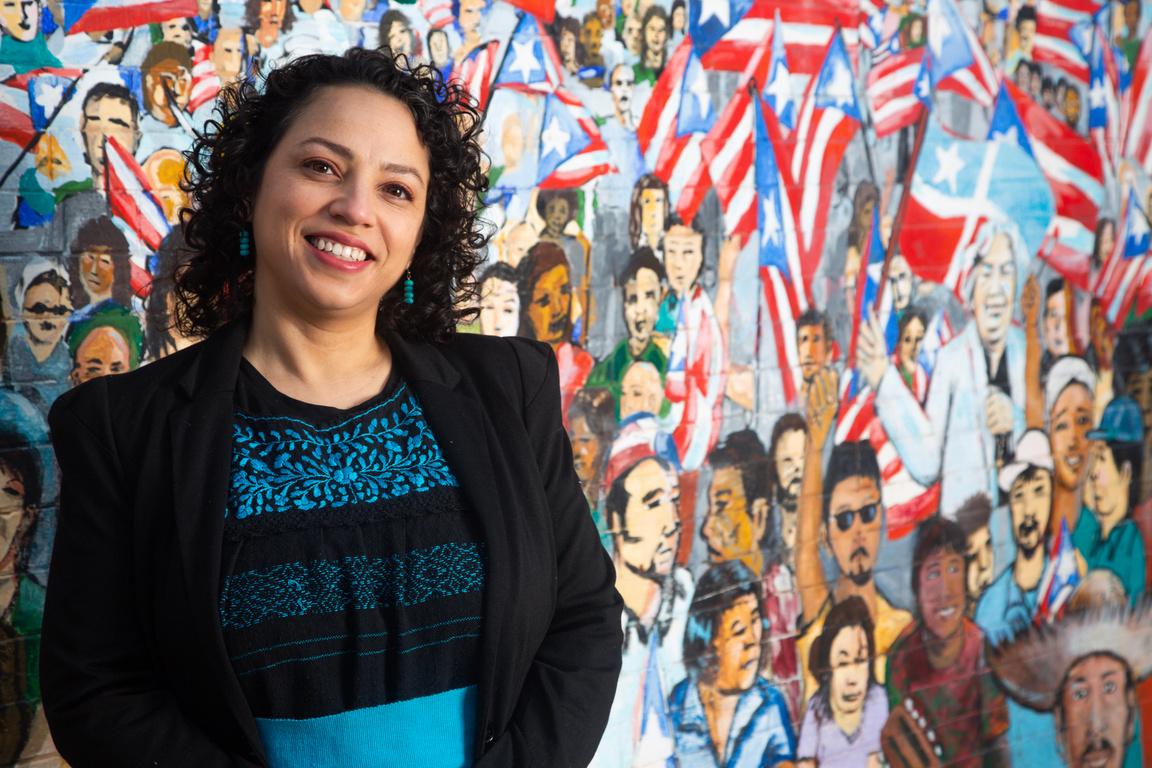

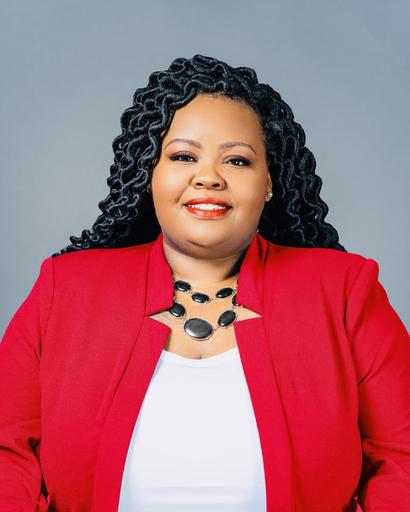
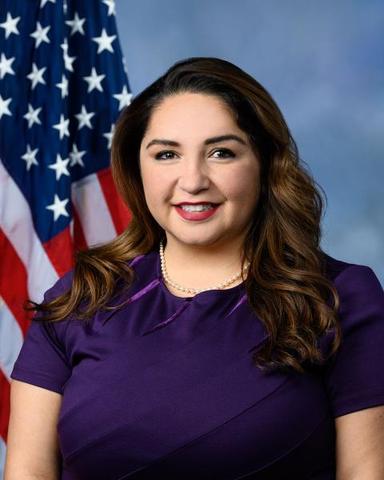
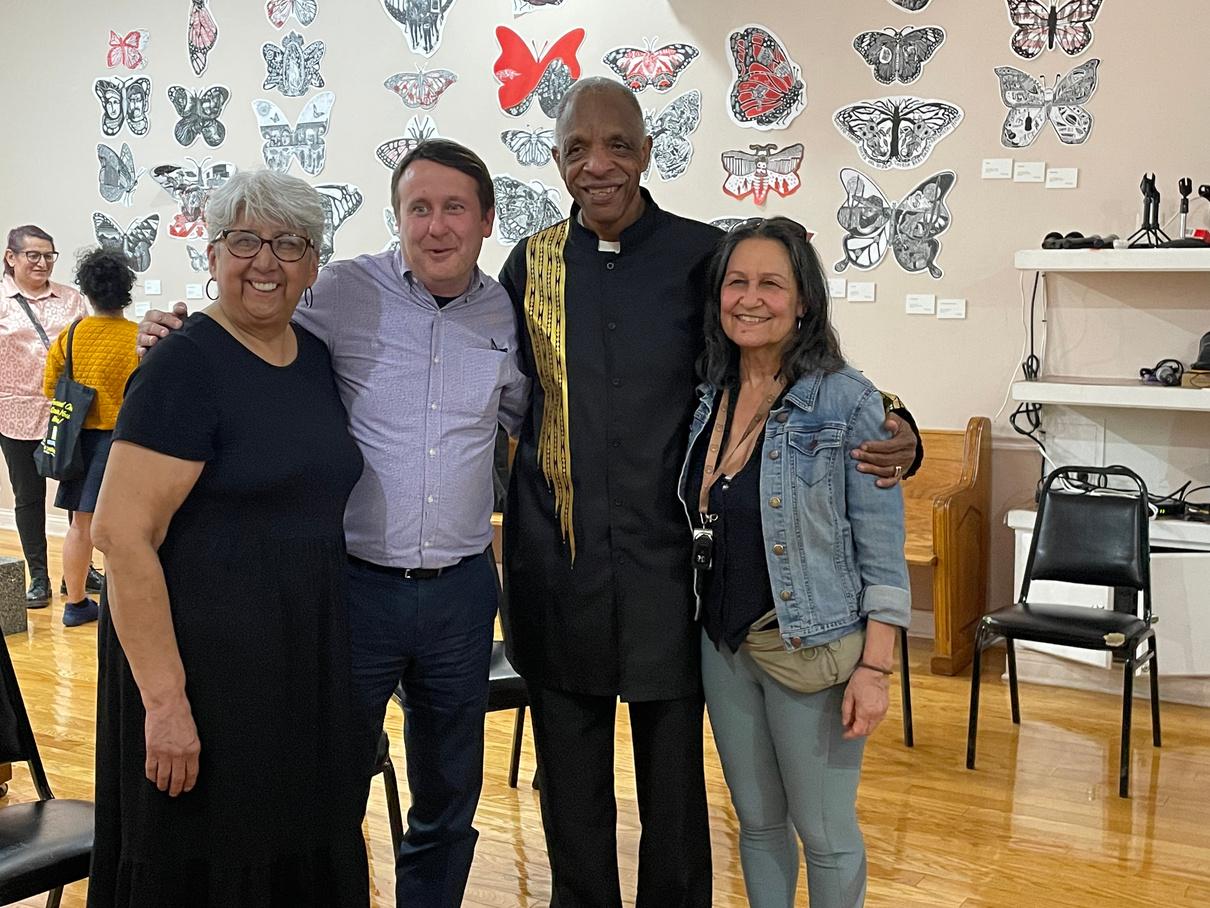
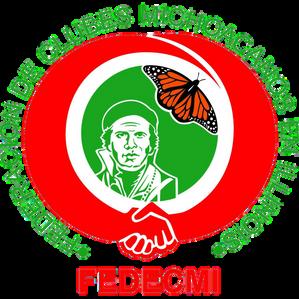

On April 13th and 14th, Dr. Gordon Mantler, Associate Professor of Writing and of History at George Washington University, gave two lectures focused on his recent book, The Multiracial Promise: Harold Washington's Chicago and the Democratic Struggle in Reagan's America (University of North Carolina Press, 2023), at DePaul University and at Casa Michoacán
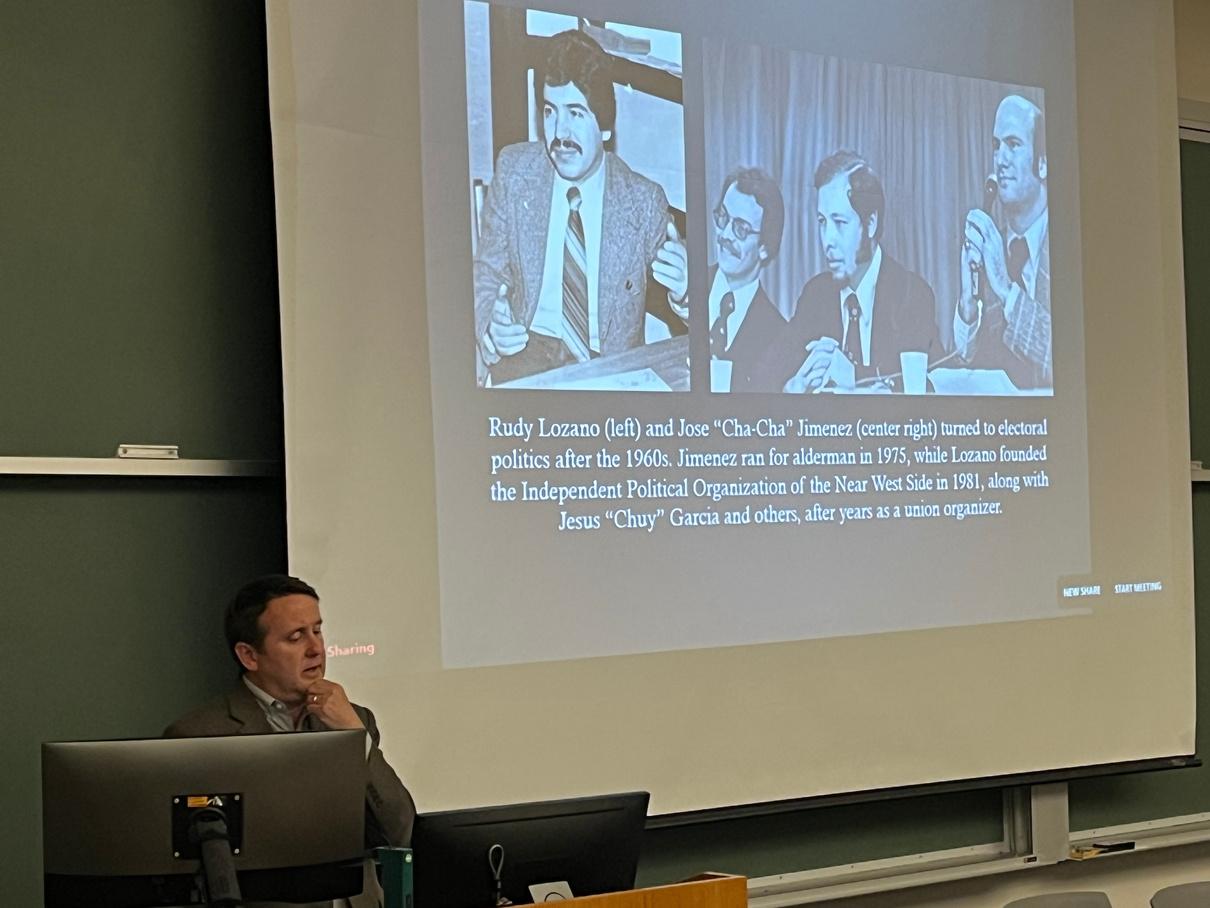
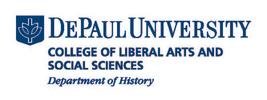
Drawing on a rich array of archives and oral history interviews, the book offers a bold reexamination of the movement that elected Harold Washington mayor in 1983. Mantler argues that the election bolstered hope among Democrats that the party could win elections by pulling together multiracial urban voters around progressive causes. However, Mantler also discusses how white supremacy, deindustrialization, dysfunction, and voters' own contradictory expectations stubbornly impeded many of Washington's proposed reforms
Co-sponsored by:

Dept. of African and Black Diaspora, Center for Black Diaspora, and the Dept. of History
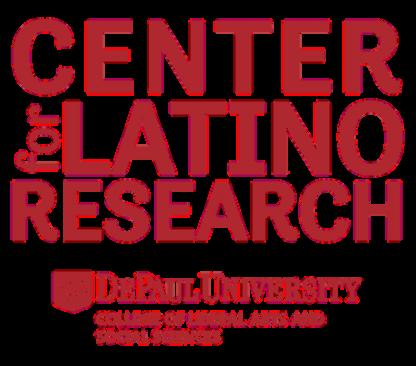


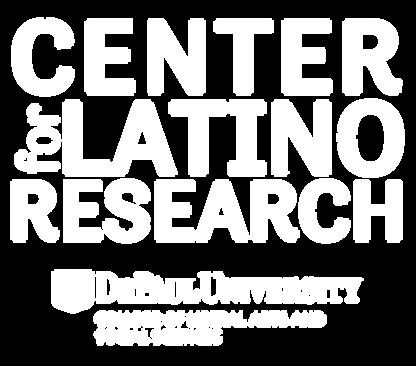
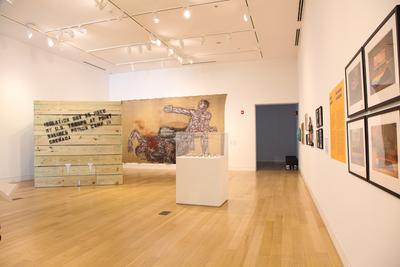
Art for the Future: Artists Call and Central American Solidarities focuses on the seminal 1980s activist campaign, Artists Call Against US Intervention in Central America Growing out of the friendships, solidarity networks, and political organizing amongst artists and activists such as Daniel Flores y Ascencio, Lucy Lippard, Doug Ashford, Leon Golub, and Coosje van Bruggen, the campaign resulted in exhibitions, performances, poetry readings, film screenings, concerts, and other cultural and educational events in over 27 cities across the United States and Canada, including Chicago. The exhibition highlights Artists Call’s history through a selection of activities and works from the 31 exhibitions and over 1,100 artists who participated in New York City and references Artists Call’s legacy today in new forms of inter-American solidarity networks and visual alliances. This exhibition is organized by Tufts University Art Galleries (TUAG) and curated by Erina Duganne, Associate Professor of Art History, Texas State University and Abigail Satinsky, TUAG Curator & Head of Public Engagement.
Thursday, May 11, 6 P.M. at DPAM
Screening of Yvonne Rainer's 1985 film, The Man Who Envied Women, followed by a conversation with Art for the Future co-curator Erina Duganne and Professor Daniel R Quiles

Thursday, May 18, 6 P.M. (online)
Art Projects For The Now: LL Proyectors & Casa Ma - A panel discussion on Central American Based Art Spaces
Saturday, July 15, 5 P.M. at DPAM Revolutionary Filmaking and Historical Memory in El Salvador: Seizing the Means of Projection, curated by Jacob Lindgren (Inga Books)
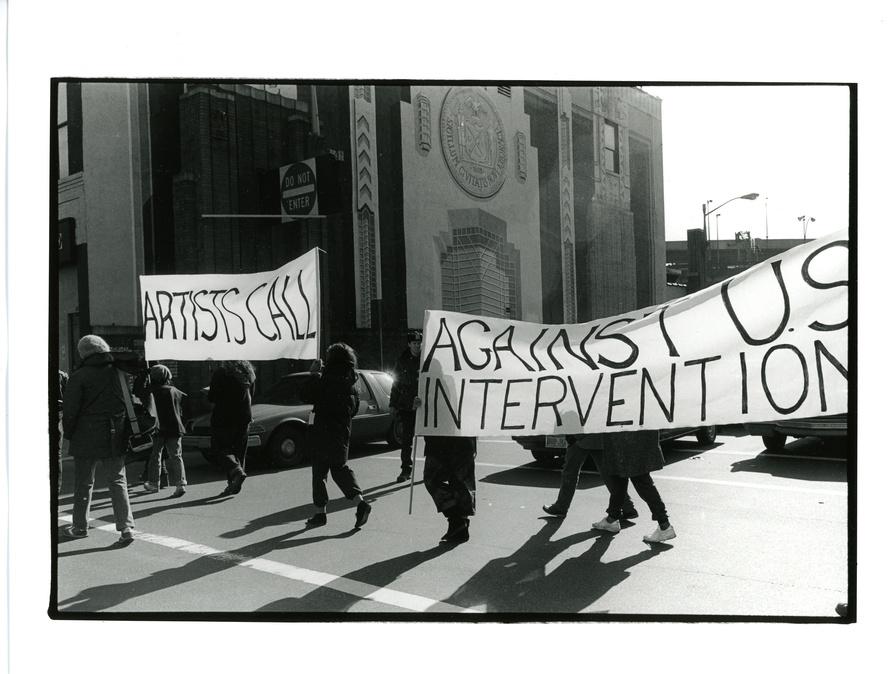 Installation view.
Photo: ChiaraConner
DonaAnnMcAdams, Procession for Peace with Artists Call banner, New York City, 1984 Silver gelatin print
Installation view.
Photo: ChiaraConner
DonaAnnMcAdams, Procession for Peace with Artists Call banner, New York City, 1984 Silver gelatin print
Maria G. Arias
Principal, Maria Arias Solutions
BA, Political Science, DePaul University, 1983
Leonard Domínguez
Secretary, Little Village Rotary Club of Chicago
BA, Economics, DePaul University, 1967
Yvette Flores
Managing Partner/Director, Cardinal Green Investments LLC
BA, Sociology, DePaul University, 1986
Marisol Morales
Executive Director, Carnegie Elective Classifications, American Council on Education
BA, Latin American Latino Studies; MA/MS International Public Service Management, DePaul University, 1999
Michelle Morales
President, Woods Fund Chicago
BA, Latin American Studies, DePaul University, 1997
Maria Pesqueira
President, Healthy Communities Foundation
BA, Latin American Studies, DePaul University, 1990
Edgar Ramírez
President/CEO, Chicago Commons Association

BA, Political Science/Latin American Studies, DePaul University, 2000
Lou Sandoval
President/CEO, Halo Advisory Group
BS, Biochemistry, DePaul University, 1988
Lucino Sotelo
Chief Digital Officer, Northern Trust Corporation
BS, Accounting, DePaul University, 1993
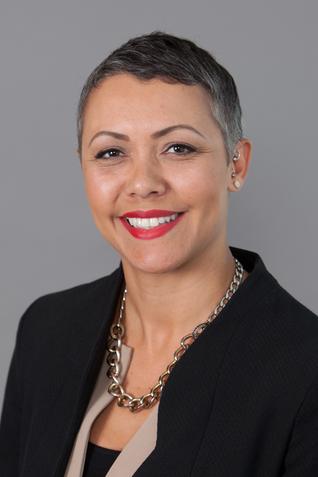
Over the past three years, the CLR and LALS Department have been working with Dr. Marisa Alicea to identify a group of DePaul alumnae/i and community members to serve our units as an External Advisory Board. This volunteer group serves as advocates, advisors, and resources for CLR & LALS faculty and students The group meets quarterly to remain informed about CLR & LALS activities and to establish a plan to assist in our efforts
The board’s work is grounded on a common understanding of the importance of the opportunity to study and research Latin American and Latinx communities. In this spotlight, we conduct personal interviews with our alumnae/i to shine light on what they have done since graduating DePaul University and the work they do outside of serving on out External Advisory Board.
My name is Michelle Morales and I'm the president of Woods Fund Chicago. I've been living in Chicago for almost 30 years now, and I am involved with the DePaul CLR/LALS Advisory Committee because I'm an alumnus. I graduated from the undergraduate program at DePaul in 1997 as a Latin American and Latino Studies major
Can you tell me about your work as an organizer at DePaul?
A friend of mine and I started a student organization that's unfortunately no longer around. It was called “Junta de Acción Latina.” We tried to form a student organization that was going to organize on campus, lead demonstrations, etc. "Junta de Acción Latina" was designed to organize and advocate. We did that with a lot of help from the Center for Latino Research (CLR), and from Dr Félix Masud-Piloto, who was the director of the CLR at that time. We were organizing for a Latino Cultural Center and we were co-organizing with a black-led student organization that was also doing organizing and advocacy We were doing a lot of actions of solidarity, but mainly it was an organization that was trying to really think about how to advocate for Latinx students on campus, the
Michelle Moralesexperience of Latinx students at DePaul, and trying to organize around issues that resonated with us.
Why did you feel it was necessary to start this organization?
The population of Latinx students at DePaul was pretty small back then. We were trying to raise awareness of issues affecting the Latinx student body. We were doing events in solidarity with organizations that supported undocumented students, trying to see what resources were at DePaul at the time to support undocumented students. We were advocating around financial issues as well,
since many of us at DePaul were on some pretty robust financial aid packages given the cost of dorms and the cost of tuition. The main push was a Latino Cultural Center, which was something that we were pretty passionate about. Having a place that would be in addition to the Center for Latino Research.
It’s the place where we would hang out, the place where we would receive mentorship, and it became a home to so many of us on campus. That's what kind of sparked the conversation of what would it look like to have a dedicated cultural center, particularly since so many of us were first-generation college students, where we could get the support we needed, the resources, etc It was really important and transformational for me to have that space at DePaul. I think that if I hadn’t switched my major to Latin American and Latino studies, which I switched at the end of my sophomore year, I don't know if I would have graduated from DePaul. Through my LALS major I found the CLR. Switching my major and the CLR really cemented for me that I did belong at DePaul and really helped with that process
There were aspects of the Latin American and Latino Studies program that resonated with me, that gave me the language about my lived experience that I didn't have. It also taught me a ton of stuff I didn't know. It really strengthened my identity as a Latina and as a Puerto Rican woman by learning about different Latin American countries and learning about their issues, seeing that they paralleled in some ways with the same issues as Puerto Rico. It was an important inflection point in my development because it just strengthened my identity in a way of looking at
myself as a Latina in the practices of solidarity and acts of solidarity, which became really important for me as an organizer later on.
It (LALS) really strengthened my identity as a Latina and as a Puerto Rican woman by learning about different Latin American countries and learning about their issues.
I would love to hear more about your work after graduation.
I started working in the Puerto Rican community as soon as I graduated, organizing in the Humboldt Park area. I taught at an alternative high school in Humboldt Park for about five to six years, fresh out of DePaul My major and the CLR really informed that work because it was teaching at a school that had a Puerto Rican focus. Also, through the work that I did organizing for Puerto Rican political prisoners, we had to work in solidarity with other people of color, and other communities that have been marginalized in order to get a grassroots uprising. What became really important for me was understanding the realities and the experience of other Latinos, and other Latinx people, for people to call for the release of political prisoners, for example Learning of different Latino experiences and lived realities helped to inform that organizing work as well. In my role now

at Woods Fund, we fund organizing and advocacy in general. And what we prioritize is organizing and advocacy that is led by people of color and that is led by the folks that are impacted
It was interesting, to say the least Philanthropy is a very interesting space to be in. I think it has a tremendous amount of potential for solving problems and yet tends to be a space that's very risk-averse and doesn't like to step out there I think what was difficult was making sure that our grantee partners had what they needed to be able to weather the pandemic, which we found out very quickly that they didn’t They were not set up to work remotely. They didn't have laptops. They didn't have a lot of folks with home internet. We had to switch around resources to make sure that folks had what they needed to be able to work remotely and be safe. We've done a lot and made a lot of changes and it was predominantly because of the pandemic.
I just joined the board of trustees at Northeastern Illinois University My son attends there so it'll be an interesting experience. But mainly, Woods Fund. We've been doing a lot
Thank you so much for your time. Do you have any closing thoughts for students here at DePaul?
Just stick with it. I know how hard it is. Seriously, from the bottom of my heart I know that sometimes spaces like DePaul may not seem like spaces for us. And I want the undergraduate and graduate students at DePaul that are part of the Latino/Latinx community to really see themselves It's important for you to be in that space. Even though it's a struggle, it's important for you to emerge from this space in a way to add your voice to the leadership of Chicago.
Update: On April 27th, Michelle Morales was appointed by Mayor-elect Brandon Johnson to the Chicago for the People Transition Committee. She will be serving alongside local business, activist, and government leaders
in my foundation Now that I've got a super strong team in place, a really great board of directors, I can probably start putting my focus on other areas in addition to Woods Fund. One of the things that we're really wanting to think about is how we can be advocates in the philanthropic space and hopefully advocate to other foundations.
InterviewConductedby JosuéPaniagua
Delia Cosentino (PhD, UCLA) is Associate Professor of Latin American Art History, specializing in the visual culture of Greater Mexico She is author of Las Joyas de Zinacantepec: Arte Colonial en el Monasterio de San Miguel (Colegio Mexiquense, 2007), editor of Cartographic Styles and Discourse (Artl@s Bulletin, 7[2] 2019), and co-author with Adriana Zavala (Tufts University) of Resurrecting Tenochtitlan: Imagining the Aztec Capital in Modern Mexico City (University of Texas Press, 2023 ) She curated Ceramic Trees of Life: Popular Art from Mexico (Fowler Museum, 2003), Reverence Renewed: Colonial Andean Art from the Thoma Collection (DPAM, 2009), and Nexo/Nexus: Latin American Connections in the Midwest (DPAM, 2016) with Bibiana Suárez (The Art School, DePaul)
To start, I would love to hear how it went at the recent conference of the Association for Latin American Art (ALAA) at the Universidad Nacional Autónoma de México (UNAM)?
It was fantastic. Let me say this, the more scholars in the U S that can partner with scholars in Mexico and vice versa, the more we can make progress on our scholarship, and the more we can share and make connections. Our reception in Mexico was very positive They were extremely receptive to the book that I have just co-authored with Adriana Zavala, called Resurrecting Tenochtitlan, which looks at the way that intellectuals, artists, and government officials brought awareness of the ancient Aztec capital to the modern Mexican state. Whereas Mexico City had long been thought of as a Spanish city, in the book we show how the thinking began to change as more and more people understood that Mexico’s capital actually had its urban origins in Tenochtitlan. Dr. Zavala and I were very gratified that our Mexican colleagues even proposed that we come to do a book presentation in Mexico maybe later this year, which was just very exciting because the more we open up avenues of communication, the better for all of us. And it was really fun sharing some of what we discovered about
the foundations of art history in Mexico with Instituto de Investigaciones Estéticas, the department of art history at UNAM
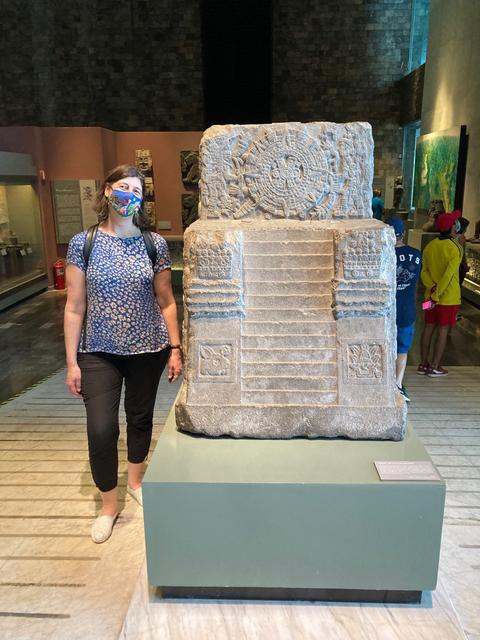
That’s so great to hear. Could you tell me a little more about the work you presented?
The conference theme was "Opening the Archives" and it was about how our thinking shifts, or some of the thinking might shift, when you have access to new information So, Adriana Zavala and I talked about the subjects of our study, including artists, scholars, and government officials, and how their minds shifted when they saw new documents and new information. We focused on especially the contributions made by Francisco del Paso y Troncoso, a very important Mexican historian who went and lived in both Italy and Spain in the late 19th century and early 20th century. He went to the archives in both Italy and Spain, and he found these documents that had to do with colonial Mexico And he made copies and he sent them back to
Mexico It was the first time that a lot of Mexican scholars had ever known this information, including both textual documents about the colonial past, as well as plans and maps that had not been seen in Mexico for hundreds of years. This was the “aha!” moment that a lot of Mexicans had at the beginning of the 20th century. Seeing new information helped to begin this shift of identity and an understanding of the past especially, we argue, related to Mexico City’s origins.
That’s so fascinating. I would love to hear more about your own interest in researching Mexico in general.
More than any place, I'm from California, so Mexico was always right next door. And of course, California was Mexico so there's continuity of culture that immediately captivated my interest when my family first moved there. When I went to college, I started to study art history and I really was looking for a way to
fuse my two interests in Mexican culture and Mexican art and art history In fact, it was during college that I studied in Spain my junior year and while I loved that, I thought “I really want to understand the relationship between Spain and Mexico ” So when I graduated college, I went to Mexico and I decided I really wanted to understand Mexican culture from the inside. I think Mexican art is more prevalent and more studied now, but it wasn't then But I'm very happy to see my classes so filled with students, especially Mexican-American students, but also all students from every place and every interest because I think there's an increasing recognition that Mexican art is part of U.S. culture and that we should all know it.
You’ve described your work about Mexico being transhistorical. Can you tell me more about that?
My co-author and I realized that one of the things that made it urgent for the origins of Mexico City to be understood in the early 20th century was the fact that the city itself was starting to change It was starting to industrialize, and the more it started to industrialize, the greater the fear that what did remain of the Aztec city would be completely lost if people didn't consciously try to hold on to it So, the more things change, the more urgent it is for many people to say, wait a second, we have to hold on to the past. We have to see those connections to the past and maintain and preserve those connections The Mexican art historians in the 20th century who were most interested in the 16th century maps of the city became interested in those maps because they were worried about preserving, ironically, the oldest churches So, the more they were interested in preserving these early churches, the more they recognized that the locations of the churches and
There's an increasing recognition that Mexican art is part of U.S. culture and that we should all know it.
the organization of the city was based on Aztec choices, which again is mind blowing and exciting So our work is trans historical in the sense that it investigates shifting dynamics across various periods, from the Aztec past, through colonial change, to modern Mexican history.
I feel emotional about Mexican art I don't think you have to be associated with any particular national or racial identity to want to understand the implications of European colonization of the Americas It's painful, but in many ways, it just makes me more determined to call attention to power dynamics, to call attention to historical realities, to engage my students in why the study of art is not actually only about art It's about history. It's about politics, culture, and identity. If anything, it just puts more of a fire under me to share
what I know and to get students excited about understanding the Mexican past through its visual culture.
I want to thank you for your time. Do you have any upcoming work you’d like to highlight?
This book project has been dominating the last five years of my life so I'm still very much enjoying the process of talking about it because I love and I really believe in the work that we did, and especially the fact that it was collaborative with a really dear friend of mine But it is also exciting to think “what now?” And actually, my new research project has grown out of the book project. It's different, but it's rooted in one of the images that I analyzed for the book It's one of the most famous images of the center of Tenochtitlan which is an illustration by an archeologist and an architectural designer in the early 20th century named Ignacio Marquina I looked more closely at the image, and I understood it in a way that made me interested in getting to the origins of the image. This has led me to a really important indigenous narrative about a gladiator called Tlahuicole, a revered gladiator It goes over an
epic battle that took place in Tenochtitlán with Tlahuicole against the soldiers of Moctezuma. And really my project is talking about how the image of that gladiator has changed over time And I was just awarded a fellowship for it for next year from the Humanities Center at DePaul, so I’m really excited about this project and I’ll be working on that for the next couple years. Thank you for your interest in my work and for your great questions
The study of art is not actually only about art. It's about history. It's about politics, culture, and identity.
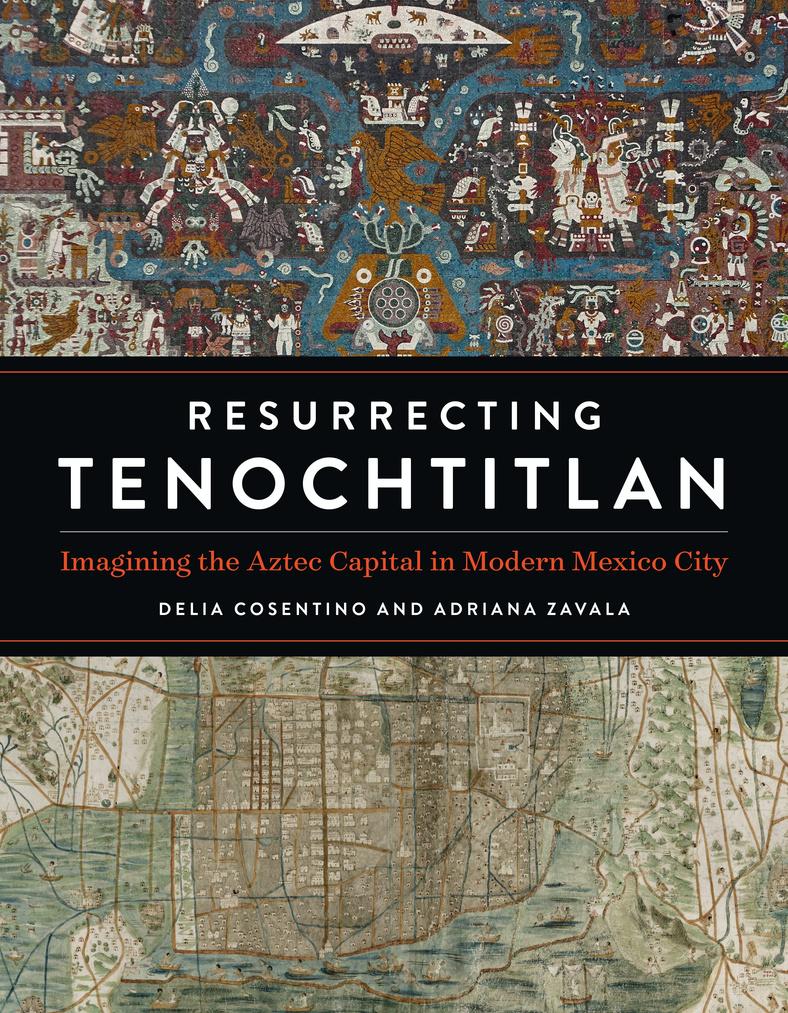
Poesía en abril celebrated its 14th festival on April 20th - 22nd, 2023
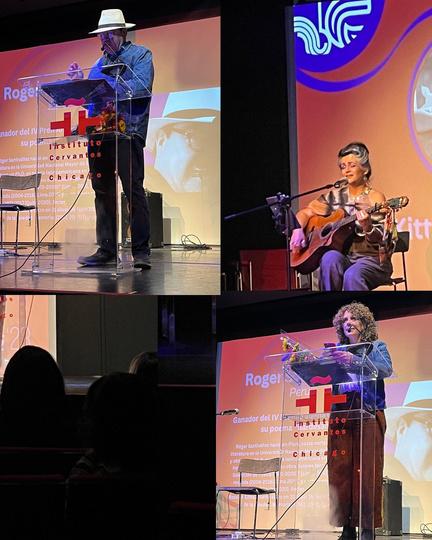
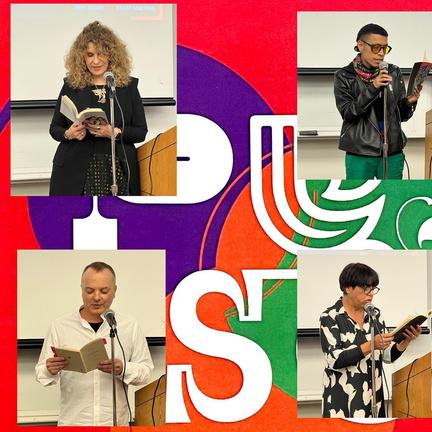

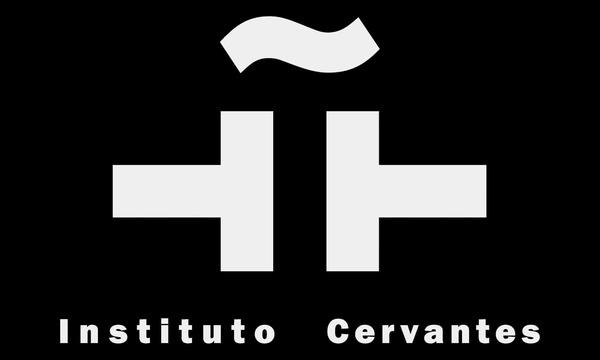
Opening night was held at DePaul University Honored poets, Gioconda Belli and Luis Muñoz, and guest poets from Latin America and Spain, gave a lively reading of selected works. On April 21st and 22nd, poets engaged in readings and interviews at Instituto Cervantes, and closing night was held at Coprosperity Sphere.
Poesía en abril is an international Spanish-language poetry festival, presented annually by Contratiempo and DePaul University, recognized as the premier Spanish-language literary event in the Midwest The festival brings together poets from Chicago, other U.S. cities, Latin America and Spain.
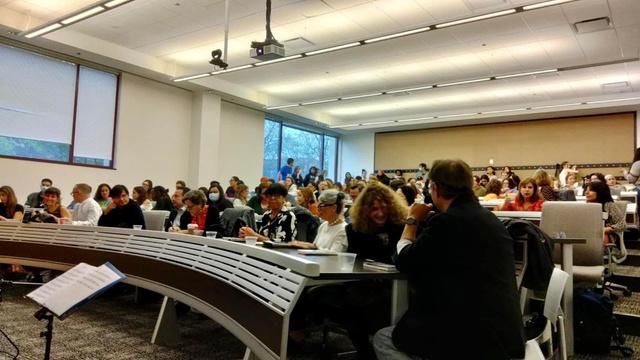
Honored Poets
Gioconda Belli (Nicaragua)
Luis Muñoz (Spain)
Guest Poets
Malú Urriola (Chile)
Rafael Ortiz-Calderón (México)
León Salvatierra (Nicaragua)
Ethel Barja (Perú)
Carlos Aguasaco (Colombia)
Olivia Maciel (México)
Manuel Tzoc (Guatemala)
Yolanda Nieves (Puerto Rico)
Ruth LLana (Spain)
Jamila Medina (Cuba)
Eduardo Arocho (Puerto Rico)
Music
La Paula Herrera (Chile) with Chris Ferrer (Venezuela)
Sponsored by:



On April 20th, historians Dr. Carolina Ortega (Texas A&M University-Corpus Christi), Dr. Juan Ignacio Mora (Indiana University), Dr. Delia Fernámdez-Jones (Michigan State University), and Dr. Antonio Ramirez (Elgin Community College) presented their research to the DePaul Community.
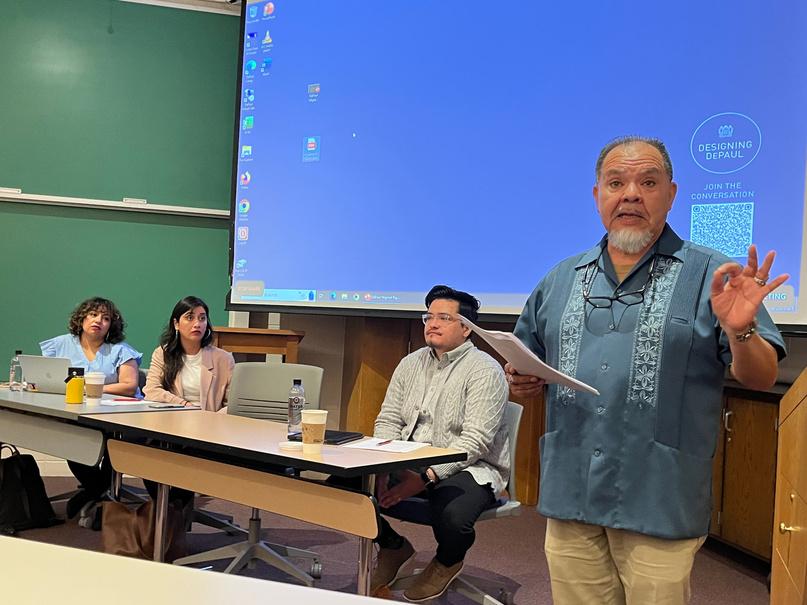
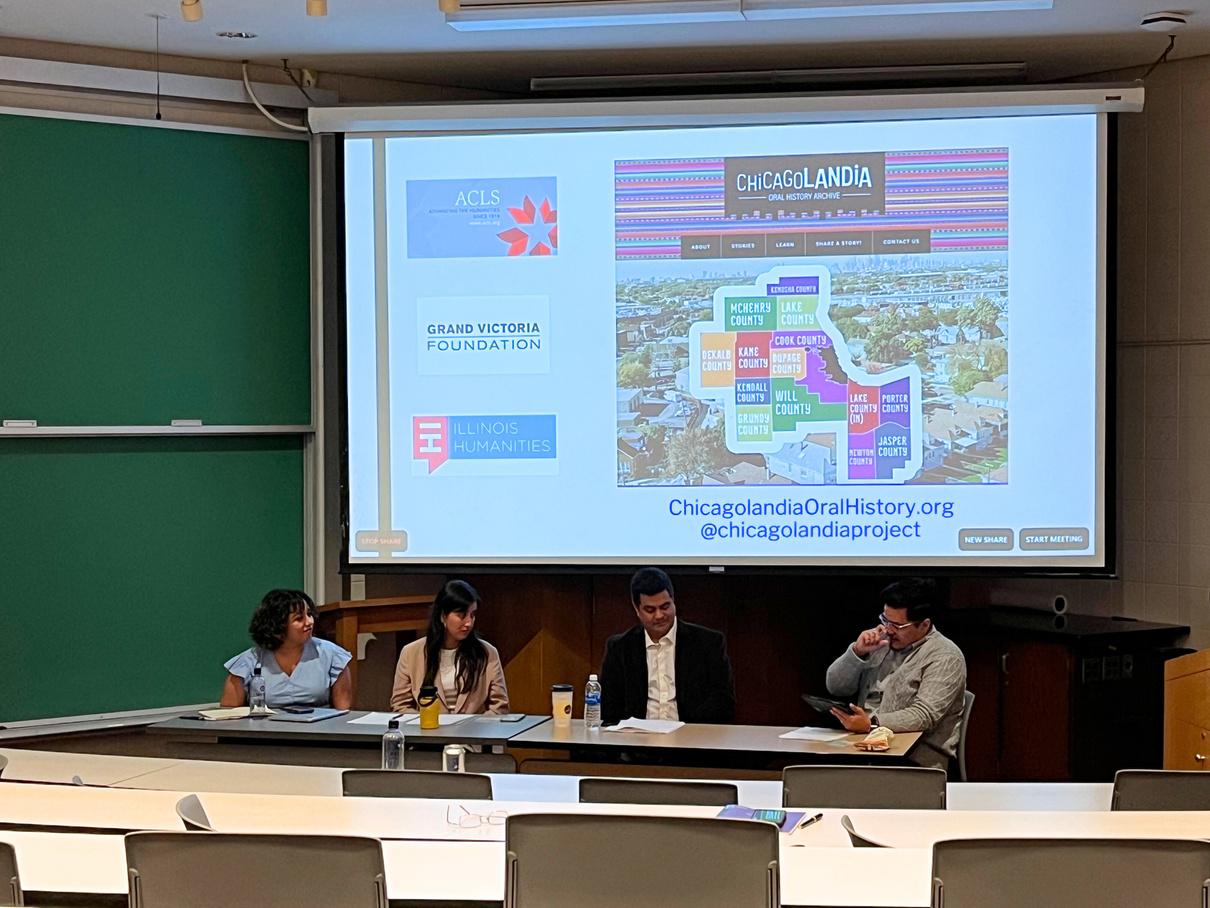
For more than a century, Latinas/os/xs have transformed urban and rural spaces across the U.S. Midwest. Whether through creating vibrant communities in large or mid-sized cities, contesting state violence and U.S. colonialism, forging political coalitions, producing powerful artistic works, or sustaining various industries with their labor, the historical impact of Latinas/os/xs on the Midwest has been far-reaching. The work of these historians brought together the newest generation of scholars of the Latina/o/x Midwest who are working to deepen our understanding of the region’s importance within the larger field of Latina/o/x History.
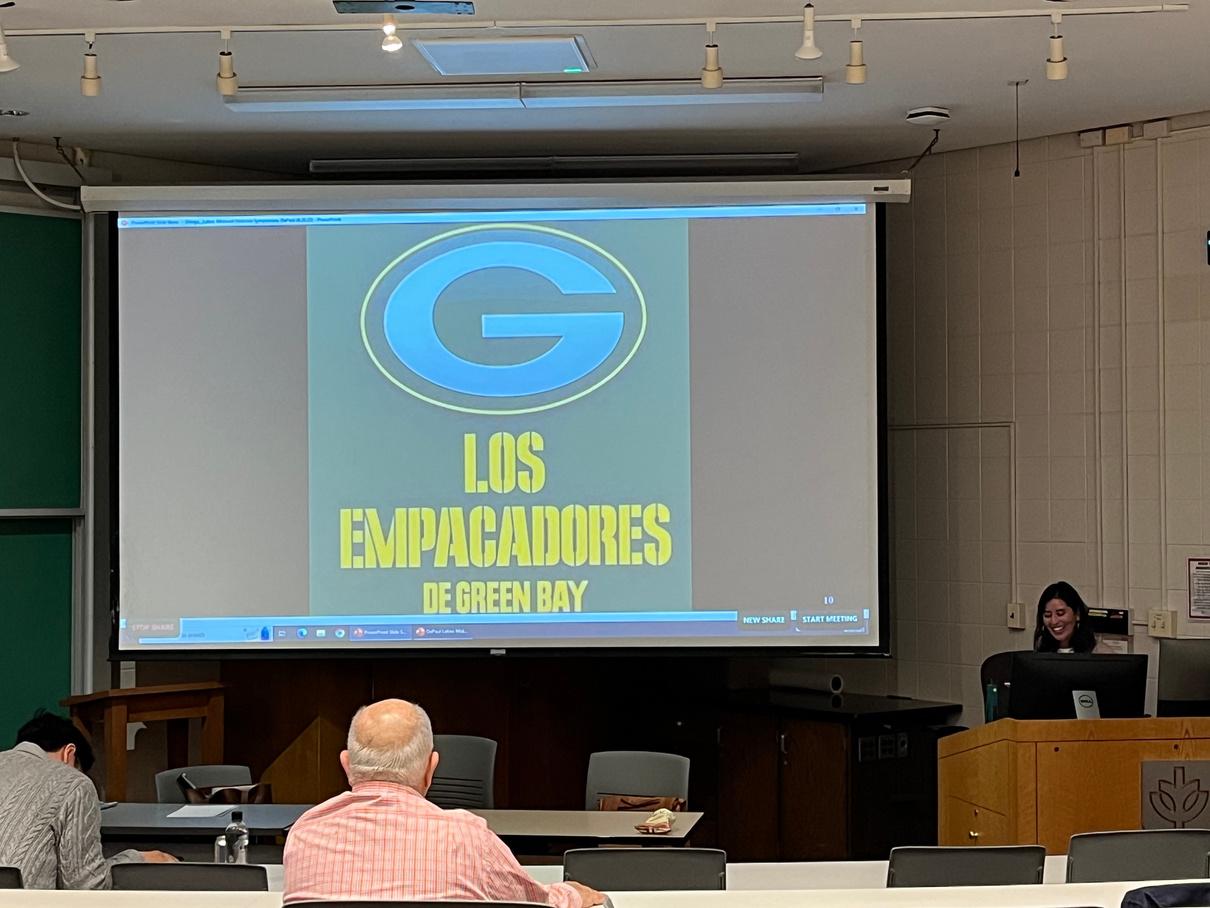
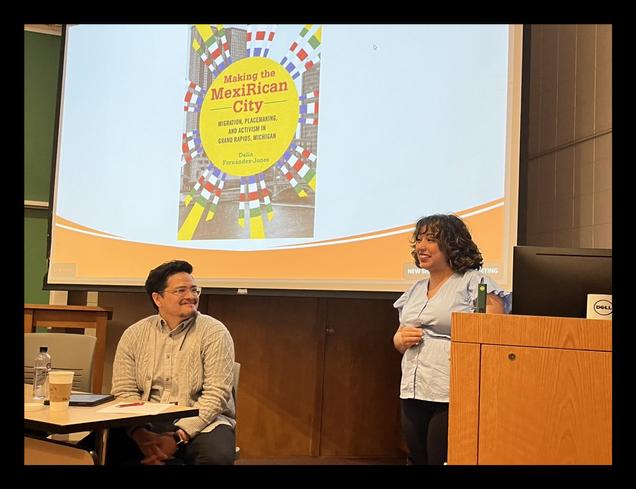
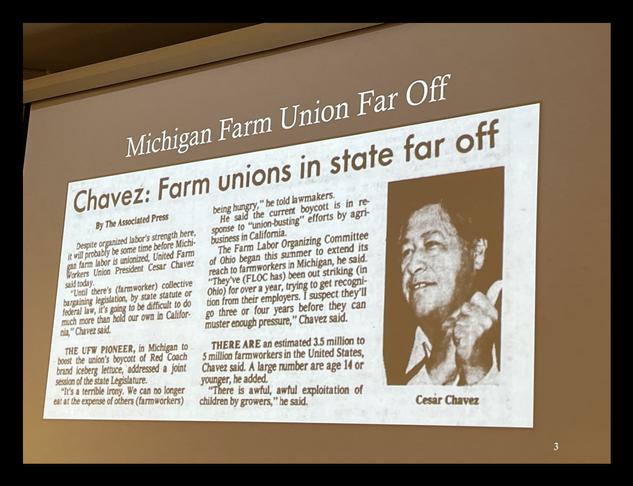
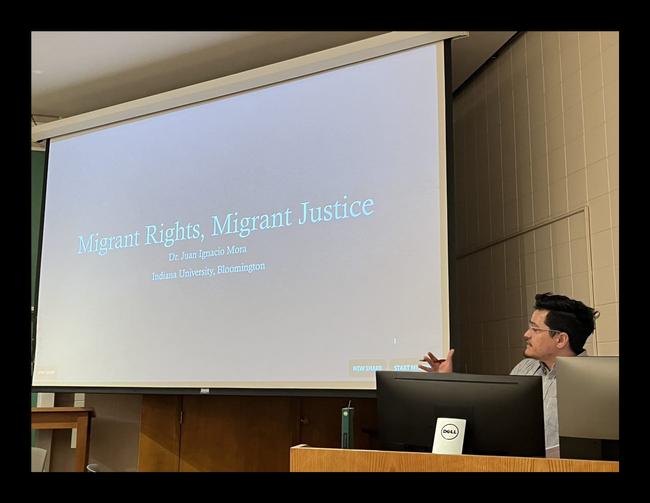
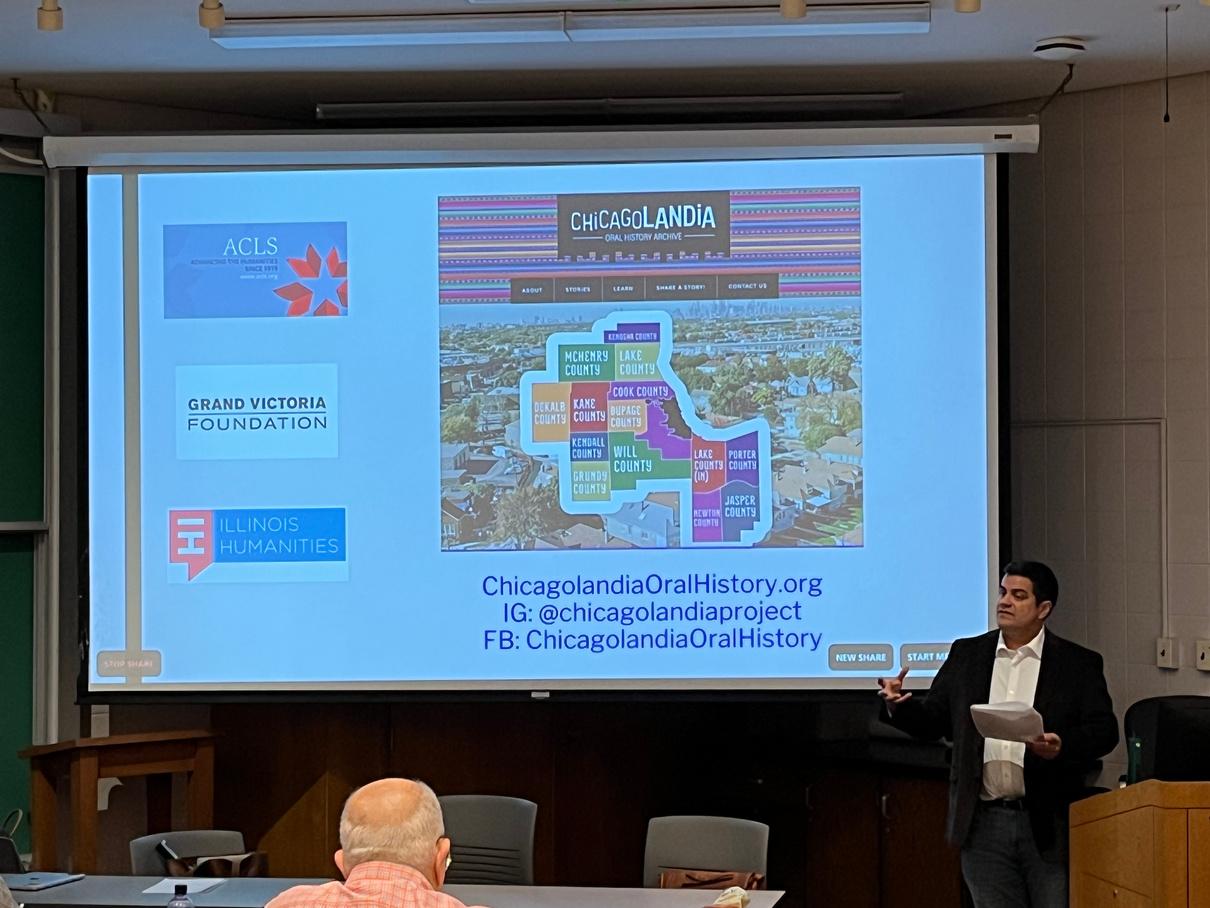
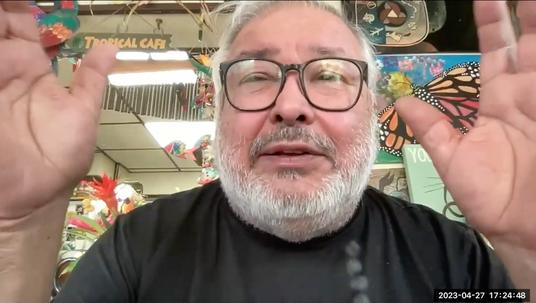
Guest Thematic Editor: LucíaM
On Thursday, April 27th, we celebrated Diálogo's latest issue, "Building Latina/o/x Studies: Case Samples from the Midwest," Volume 24, Issue 2, with a panel discussion featuring the guest thematic editor Dr. Lucía M. Suárez (Iowa State University) who joined us in person at DePaul, and contributors Dr. Frances R. Aparicio (Northwestern University), Dr. Sylvia Martínez (Indiana University Bloomington) and Dr. José Cuello (Wayne State University), who joined via Zoom. The panelists shared highlights from their contributions to the issue, and discussed the current state of Latinx Studies programs across the nation.

Guest thematic editor, Dr. Lucía M.
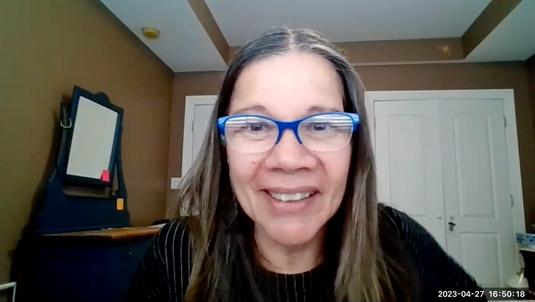
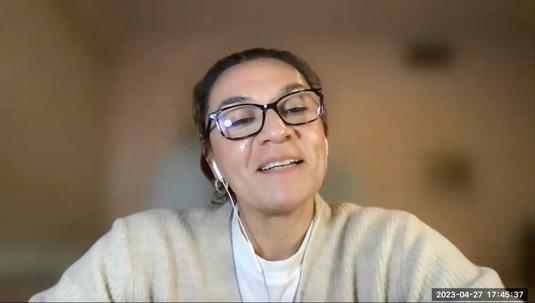
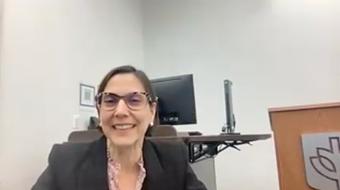
Laura Pachón is a second-year master's student in the Refugee and Forced Migration Studies program She is a former Graduate Editorial Assistant at the Center for Latino Research We talked about her time at DePaul, her work at the National Immigrant Justice Center, and the importance of Latina representation in these experiences
I’m originally from Colombia, and I immigrated to Miami, Florida when I was about nine months old and was raised there. I studied International Relations at Rollins College in Winter Park, Florida, with a minor in Latin American and Caribbean Studies I am currently finishing up my master's in Refugee and Forced Migration Studies at DePaul. This came about because a lot of my classes had a human rights focus. Whenever you're studying human rights, you start to pick your favorite ones, and mine were education equity and accessibility and migrant rights I wasn't intentionally looking to study Refugee Studies I was looking in big cities, political cities, where I could do a masters, and I came across DePaul. My dad, though raised in Bogotá, Colombia, was born in Lombard, IL, so I had connections to Chicago already. I have family in the North Shore suburbs, so I grew up coming to Chicago I felt really confident in making the decision to come here, and I think it was the right choice. I plan on staying in Chicago for the foreseeable future. I like to run, I like to play soccer, I like to work, I like to read a lot. That's pretty much me.
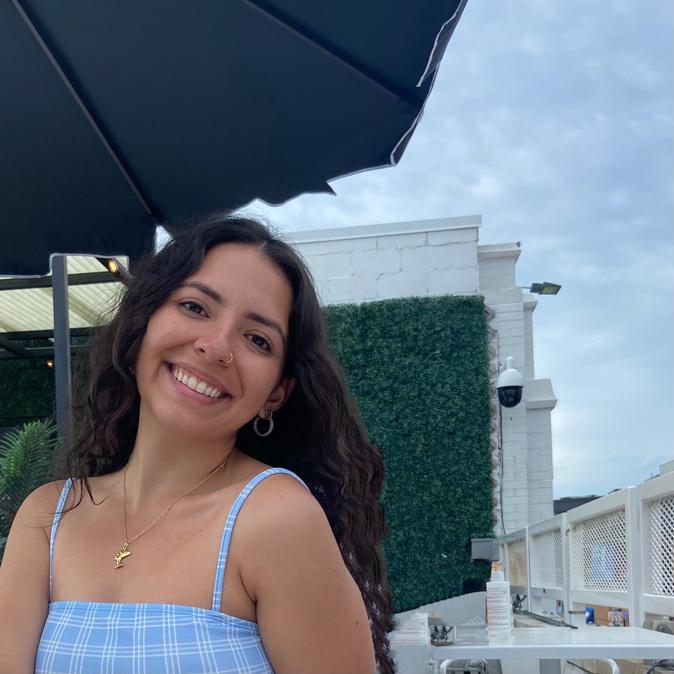
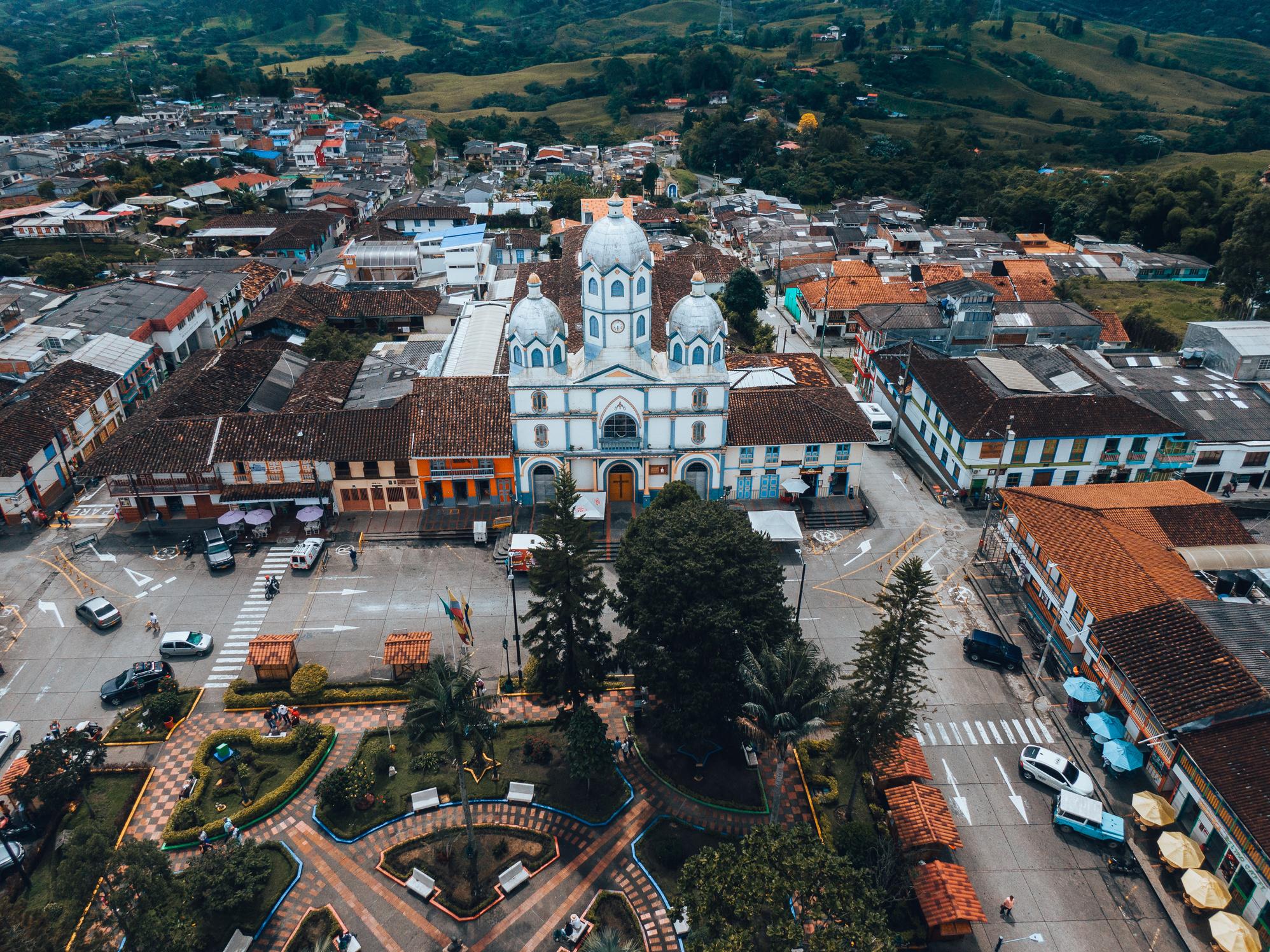
My mom and dad are both from Colombia; my mom is from Santander and my dad is originally from Villavicencio and was raised in Bogotá. Their siblings and their parents are all in the United States We have
family in Pennsylvania, Texas, Florida and in Chicago, but we still have our extended family in Colombia. We grew up being really close to my dad's cousins, and we still interact. I'm really close with that family. My dad studied in Los Andes University, in Bogotá, and his best friends from college are there Their kids are some of my best friends, I consider them like my cousins It’s also helpful to have friends in Latin America so I can get their point of view on certain things, especially in terms of gender identity because in Spanish everything is gendered. It definitely is helpful to know I can reach out to those friends whenever I need to
What has been the most rewarding part about your time at DePaul?
I'm a graduate student, and across the board, any graduate school you go to, we're always going to be kind of on the back burner in terms of services. But I've enjoyed DePaul. I've actually been able to be more involved in the DePaul community because I've been doing work-study since the minute I arrived in Chicago I started off being a receptionist for the residential halls and then I ended up finding a fellowship in the College of Liberal Arts and Social Sciences. LAS got a Carnegie Mellon Foundation grant to start a project called Humanities X, and the topic for the cohort of fellowships was migration and immigration, so it was a great way of segueing into something in my field. It was a step up, it was the first small step that helped me get into this work. However, the position was only for the winter and summer quarters. In the fall of 2022, I was able to find a job with the Center for Latino Research I was asked to be on a panel for an orientation for graduate students of color. There, I met Billy and we talked about the center, which I had never heard of until that moment, which was a year later from me starting my program. And that's how I found this job.
Work-study really helped me to be involved and get to know the DePaul community a little bit better I have enjoyed my time a lot. I think the most rewarding part of DePaul has been the connections I've made, and I'm all about my networking. I was able to connect with the Executive Director of my current job because one of my professors, Craig Mousin, had started the organization It started very small, and it turned into the big legal service that it is today. I was able to connect with the Executive Director locally, which is a big step because she is a big name in the immigration field.
Working at the Center for Latino Research was such a positive experience for me I came to Chicago with
my roommate, who is my best friend. But I lacked the Latine culture Being able to connect with my Latine friends in my cohort and working at the Center for Latino Research is kind of like scratching that itch of wanting to have Latine connections because I did come from such a diverse place. Having that outlet felt really like home to me, to have Latine people around me, it was really comforting That's been the most rewarding experience for me Being able to find Latine friends in Chicago as well, to support that part of my identity. There was a point when I moved here that I felt like I was losing it a little bit, it was an identity crisis, basically. So, it was really helpful to be able to make these really strong connections with other people and help me root myself in my identity as well
At DePaul, 20% of the students identify as Latinx: 23% of undergraduate students and 12.5% of graduate students. What can you share about your experience navigating DePaul as a Latina graduate student?
I found it more pleasant as a Latina to be at DePaul rather than my undergrad because my undergrad was in a small, predominantly white town, which was a culture shock for me coming from Miami. Orlando has a large Latine community but I was in the one little bubble that was very white My college wasn't necessarily antiLatine, but they didn't have the same Latine-ness that DePaul has. While working at the Center for Latino Research my mind was blown, and I learned about the Latinx Cultural Center, which is awesome. So, I definitely don't feel left out or sticking out like a sore thumb, like I experienced sometimes as an undergrad I see girls who look exactly like me, who have the same curly hair. You don't think about it until you're away from it. And it does feel like an “I do belong here” kind of thing. It’s helpful to be at an institution that have people who look like me and talk like me

What have you been working on since you left the CLR?
I am currently working at the National Immigrant Justice Center. I am the Project Coordinator for the Recent Arrivals Project. My role is coordinating community-based organizations, pro-bono attorneys, and pro-se clients, which are clients without representation My role also focuses on creating presentations and workshops for those clients to help them understand what exactly is the process they are going through and, in case they don't have representation and they can't afford a lawyer because they don't meet the requirements for having a pro-bono attorney, or in the case that a pro-bono attorney drops their case, the client knows what the process is rather than just being lost once their attorney leaves. But currently, I'm doing administrative work; shadowing intakes and filling out employment authorization documents. I'm also working on my practicum at Heartland Health, where I'm an intern shadowing medical case management, filling out documents, conducting home visits and accompanying clients to their medical appointments, whether it's drawing their blood or their psychiatric evaluations.
How is your Latina identity represented in your work?
The majority of our clients are Latine and Spanish speaking. So, it's honestly really helpful to be Latina because our clients will have a familiar looking face when they come to us for services. We might be in the position to support you and be the helping hand, and we also look like you and we speak like you I think that's a place of comfort for most people, especially refugees and asylum seekers. I think it's really helpful to go to an organization where everyone can communicate with you without a translator, without having to motion with your hands or have someone talk to you loudly and slowly and making you feel less than I feel that definitely having
someone who speaks the same language as you is really helpful for our clients and it creates a safe space
Being fluent in Spanish also helped me get the job. It's important to be a Spanish-speaker for my job, and it also makes me feel really empowered as a Latina. As an immigrant, I definitely came from a place of privilege because I have a United States passport; I was just lucky that my dad was born in Lombard, Illinois. He could have easily been born in Colombia. My grandfather was doing his masters here and coincidentally met someone and had kids in the United States. My dad could have been born in Colombia and then it could have been a whole different situation I acknowledge the privilege that I have, and I acknowledge the passion and the drive that I have for human rights work. So, if I can do something to help, I will do it. If you understand the hardships that a lot of Latin American countries have gone through as a result of colonialism, specifically colonialism and imperialism inflicted by the United States, you feel this sense of wanting to support the people who have been put in poverty and that have been displaced.
My last question, from colombiana to colombiana living in Chicago, do you have any recommendations for delicious Colombian food?
There's a store in Rogers Park called “La Única,” where you can get Colombian snacks and Postbón, Pony Malta and Colombiana drinks. Other than that, the restaurant “La Brasa Roja.” That one is really good as well

On January 30, 2023, in a university-wide communication ("Moving Forward, Together"), President Robert L. Manuel stressed DePaul's commitment to become a Hispanic Serving Institution (HSI). Following this communication, on March 31st, the CLR/LALS External Advisory Board hosted a meeting with President Manuel to discuss DePaul's commitment to its Latinx community and the next steps for this important initiative.
For this reason, this new section of El Centro will offer general information about the HSI designation, the process of becoming an HSI, and the ways in which DePaul is engaging this process.
The U.S. Department of Education defines HSIs as institutions of higher education that have an enrollment of undergraduate full-time equivalent students that is at least 25% Hispanic, and enrolls low-income students: “The classification of Hispanic-Serving Institutions (HSIs) was formally recognized in federal legislation for capacity-building support to improve the access and qualityofeducationforLatinoandotherlow-incomestudents.”

Emerging HSIs (eHSI) are institutions with 15-24.9% of undergraduate full-time equivalent (FTE) Hispanic enrollment. eHSIs represent a growing subset of colleges and universities; there are 401 eHSIs in the U.S.
DePaul is an eHSI, with 23% of undergraduate FTE
Source: Excelencia in Education (2023) Hispanic-Serving Institutions (HSIs) Fact Sheet: 2021-22. Washington, D.C.: Excelencia in Education.
There are 571 HSIs in the U.S., which represent 19% of all colleges and universities and enroll 62% of all Latinx undergraduates.
ThisinterdisciplinarydepartmentexploresthebroaddynamicsshapingLatin American&Latinxexperiencesanddrawscoursesandinsightsfrommultiple fields.TheDepartmentofLatinAmerican&LatinoStudiesalsoservestodeepen Latinxstudents’awarenessoftheirculturalheritage.

LST201:StruggleandResistanceinLatinAmerica
LST202/AMS297:ConstructingLatinoCommunities
LST307/AMS397:GrowingupLatino/a
LST303/AMS397:TheUS-MexicoBorder
CES401/LST310:IntrotoCriticalEthnicStudies
CES402/LST310:MobilityandtheState
LSP110:DiscoverChicago:PuertoRicanLatinos
LSP200:LatinosintheUS
HON203:SeminarinSocialJustice:ColonialityandResistance

HAA248/LST268:MexicanArt
HST121/LST121:LatinAmericato1765
April:
11-12 4:30-6:00 pm Focus Group: Political culture of Latinx students in Chicago
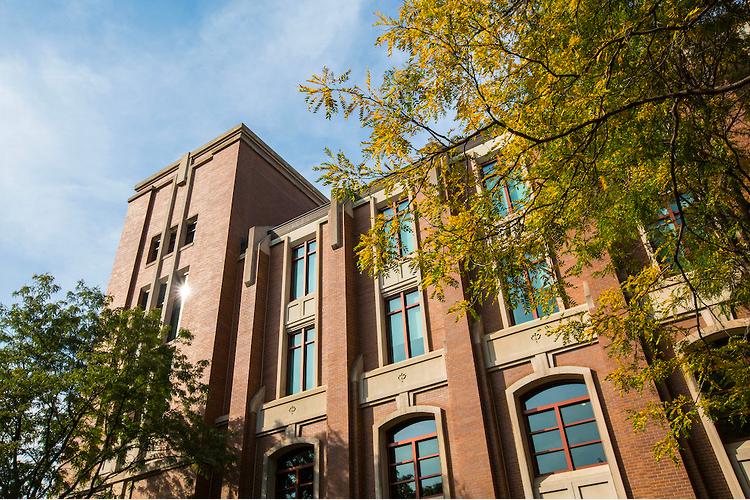
13 5:00 pm 40th Anniversary of the Harold Washington Election, Lecture by Dr. George Mantler
20 9:40-2:30 pm Histories of the Latinx Midwest: A Symposium
20 5:30-8:30 pm Poesía en abril
27 4:30-6 pm Latinx Studies Programs in the Midwest Diálogo's 25th Anniversary Symposium
May:
2 6:00-7:00 pm Virtual Q&A with Dr. Helen Yaffe
4 2:40-4:10 pm Research Talk with Dr. Yuriko Takahashi: Political Culture of Mexican Immigrants in the U.S.
11 4:30-6:00 pm LALS Core and Affiliated Faculty Book Launch
25 4:00-5:30 pm Fatherland: Culture, Violence, and the Peruvian Landscape
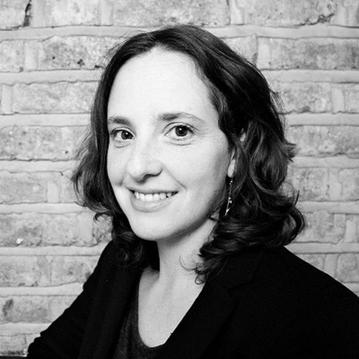
Join
Be sure to first watch her presentation on "Democracy and Participation in Revolutionary Cuba" on YouTube.
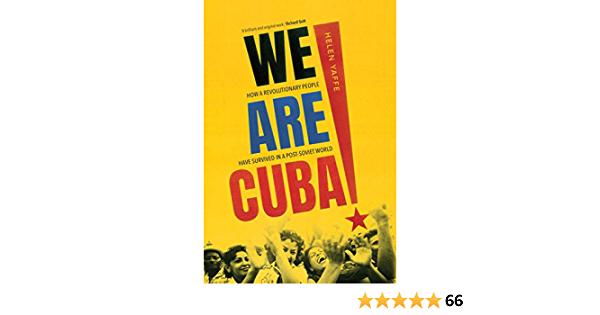
https://youtu.be/9tX n3w2QBQ
*watch until 1:24:15
Tuesday, May 2nd 6-7 P.M. Arts & Letters Hall Room 102

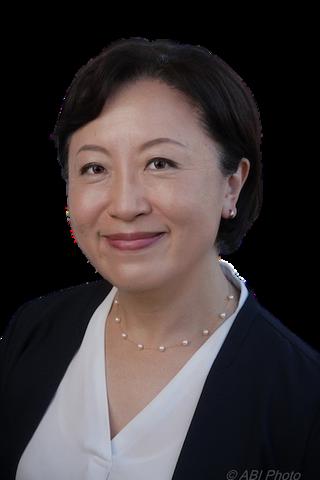 Visiting Scholar, Center for U.S.-Mexican Studies, University of California San Diego
Visiting Scholar, Center for U.S.-Mexican Studies, University of California San Diego

Thursday, May 4th // 2:40 - 4:10 P.M.
Arts & Letters Hall Rm. 102
Dr. Takahashi will present ongoing research that explores the political attitudes and political participation of Mexican immigrants in the U.S. and in their countries of origin, highlighting archival research on Mexican immigrant leaders and activists, focus group interviews with the leaders, and community surveys. The lecture will also discuss a research plan to expand its scope to the political culture of the Latinx community in the US, which is politically underrepresented relative to their share of the population.
Questions? Email mrealesv@depaul.edu
Comeandjoinusaswecelebratethebookreleases fromourLALScoreandaffiliatedfaculty!

Breaking Ground: From Extraction Booms to Mining Bans in Latin America by Rose J.
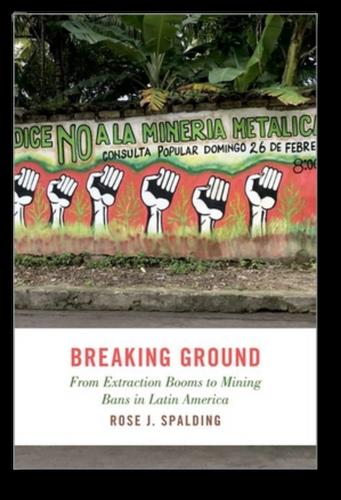 Spalding
Spalding
Resurrecting Tenochtitlan: Imagining the Aztec Capital in Modern Mexico City by Delia Cosentino and Adriana Zavala
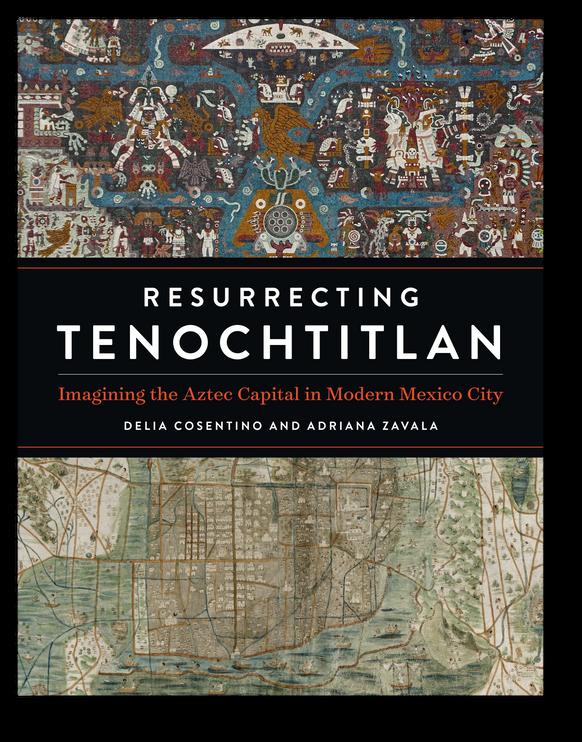
Neoliberal Urban Governance: Spaces, Culture and Discourses in Buenos Aires and Chicago by Carolina Sternberg

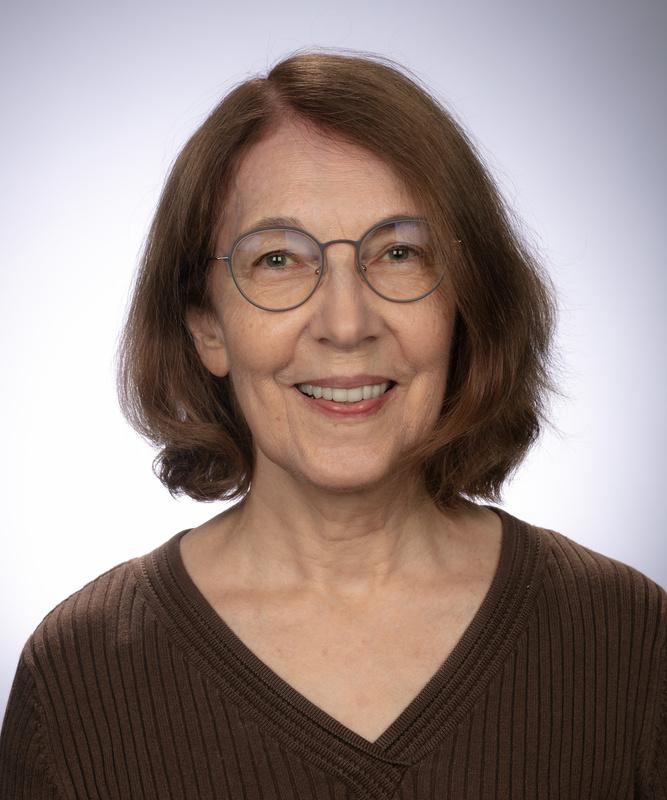
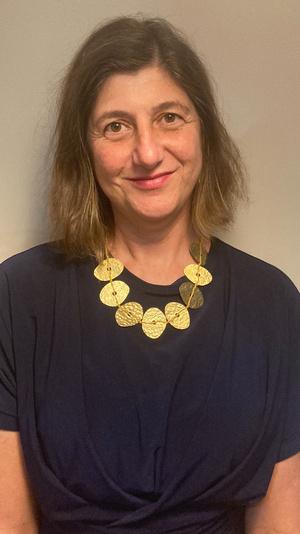
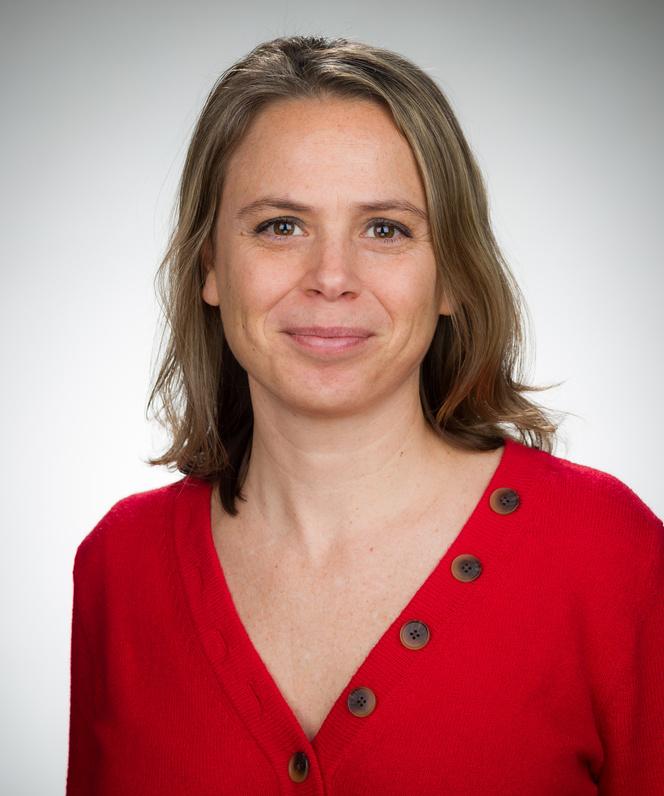
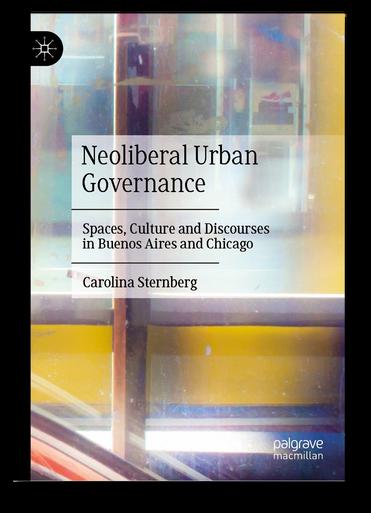
Inthispresentationartist,AndrewMroczekwilldiscusshisphotographic series
May25th,4:00-5:30pm Hybrid,ArtsandLettersHall

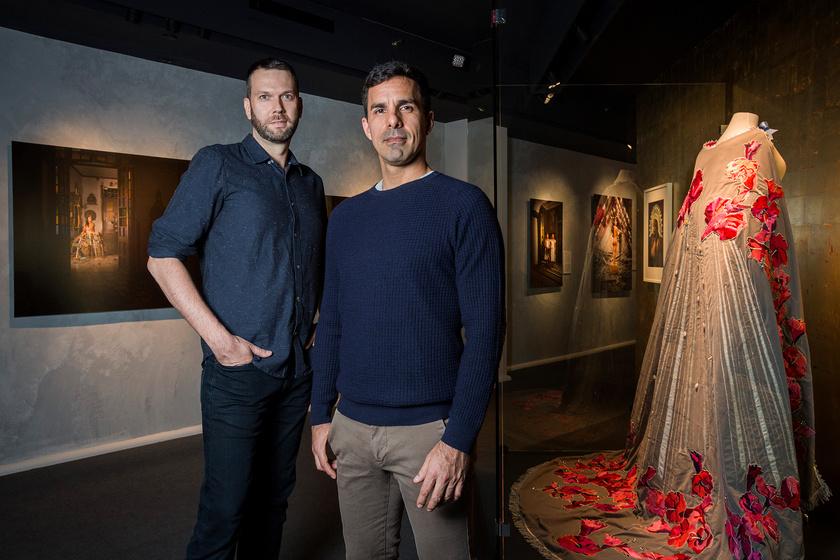
“Toembraceallaspectsofself:themasculineandthe feminine,thedivineandthehuman,theresilienceand thevulnerability,thisisthecoreof[Barboza-Gubo& Mroczek’sCanon].Andit’simportanttorememberthat thesearen’tissuesthatbelongtoPeruexclusively, theseareissuesofhumanitythatbelongtotheworld.”
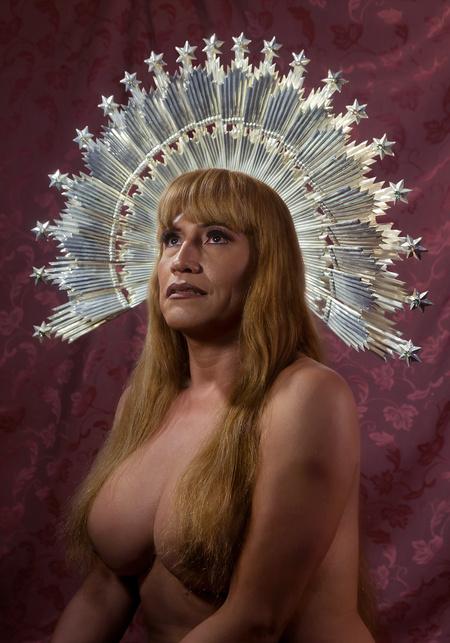
–MariaBrito,HuffingtonPost
Canon,anexhibitionbycollaborative tistsJuanJoseBarboza-Guboand ndrewMroczek,functionsontwovery fferentlevels.Ononehand,it’sa elebrationofPeruanditspeople, ndscapes,andtraditions.Ontheother, sascathingcritiqueofthecountry’s armingdisregardforLGBTrights.”
BridgetGleeson,Artsy
 JuanJoseBarboza-GuboandAndrewMroczek, Maricielo,fromtheseries:VirgenesdelaPuerta, 2014
JuanJoseBarboza-GuboandAndrewMroczek, Maricielo,fromtheseries:VirgenesdelaPuerta, 2014
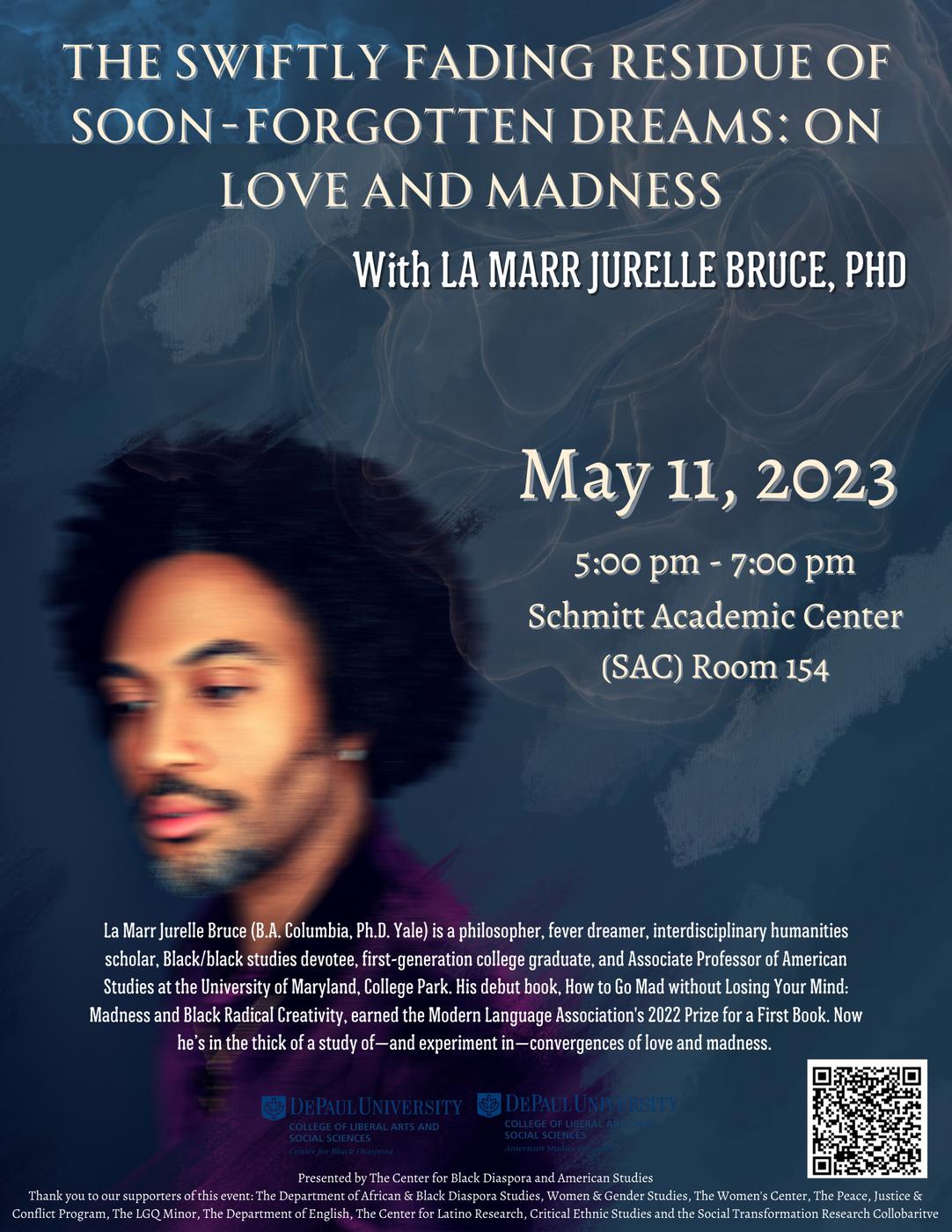
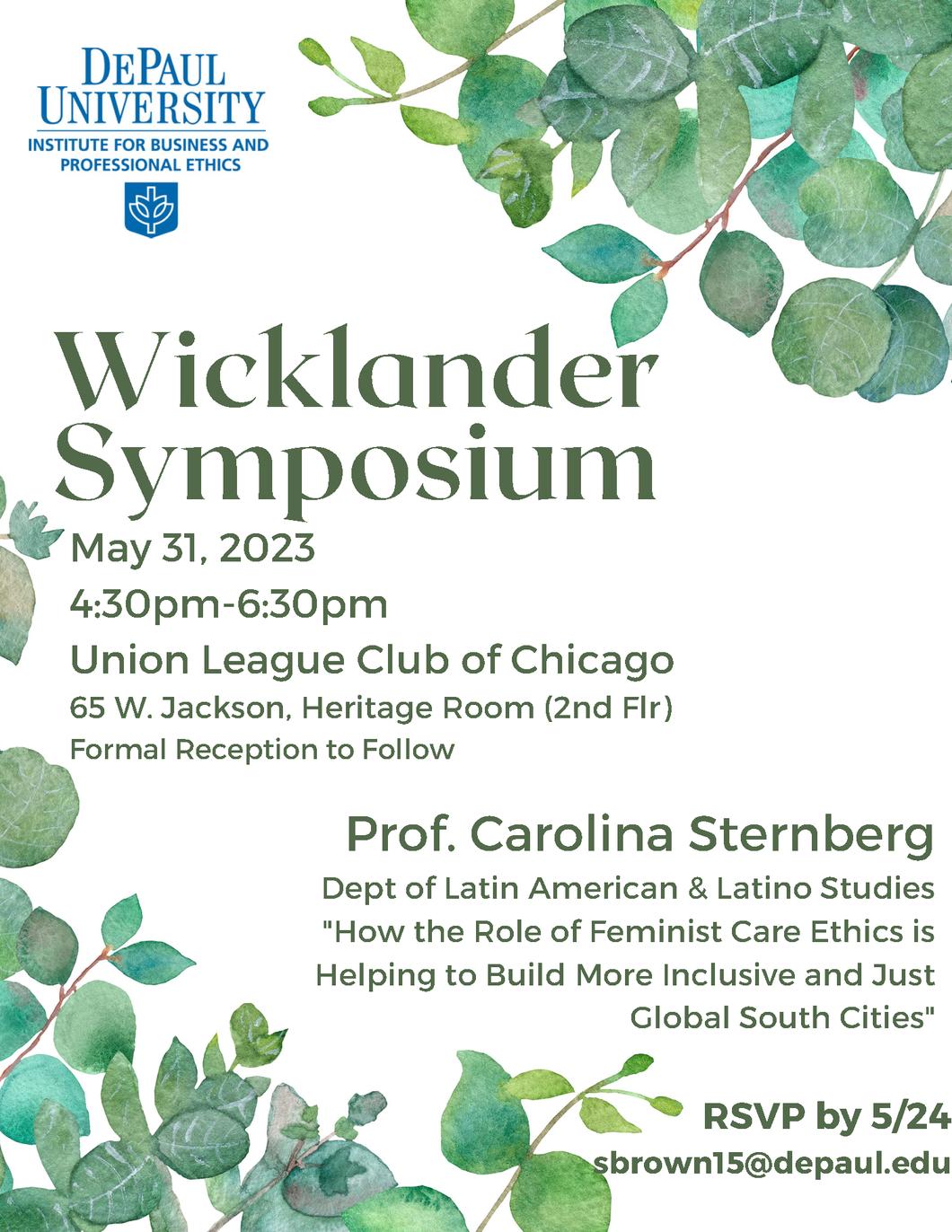
Hello everyone who has read this Spring issue of El Centro!
Thank you so much for taking the time to read the conversations I got to have with some amazing people. I hope you enjoyed reading the newsletter just as much as I enjoyed planning and designing it. I was fortunate enough to meet all of my interviewees for the first time and learn about some of the incredible work that they have done recently Listening to them speak about issues directly impacting the Latine and Latinx community and what they have done about it is truly inspiring to say the least. Creating a newsletter was new territory for me as well, so I wanted to make sure that I did right by everything that was included within this quarter's issue.
It goes without saying that trying to balance a life between school and work can be challenging for anybody, but I'm happy to have gotten an amazing position such as this one Starting out as LALS and CLR's new undergraduate student assistant has given me the opportunity to step out of my comfort zone and gain new experiences I might never have gotten before. Part of this comes from the fact that this is an environment that is primarily focused on empowering and uplifting Latine and Latinx voices. This has been both wonderful and enlightening as it touches on a part of my identity that I haven't gotten to explore nearly enough. I'm proud of the work I have been able to do here so far and can't wait to see what this job has in store for me in the future
-Josué Paniagua, Student Assistant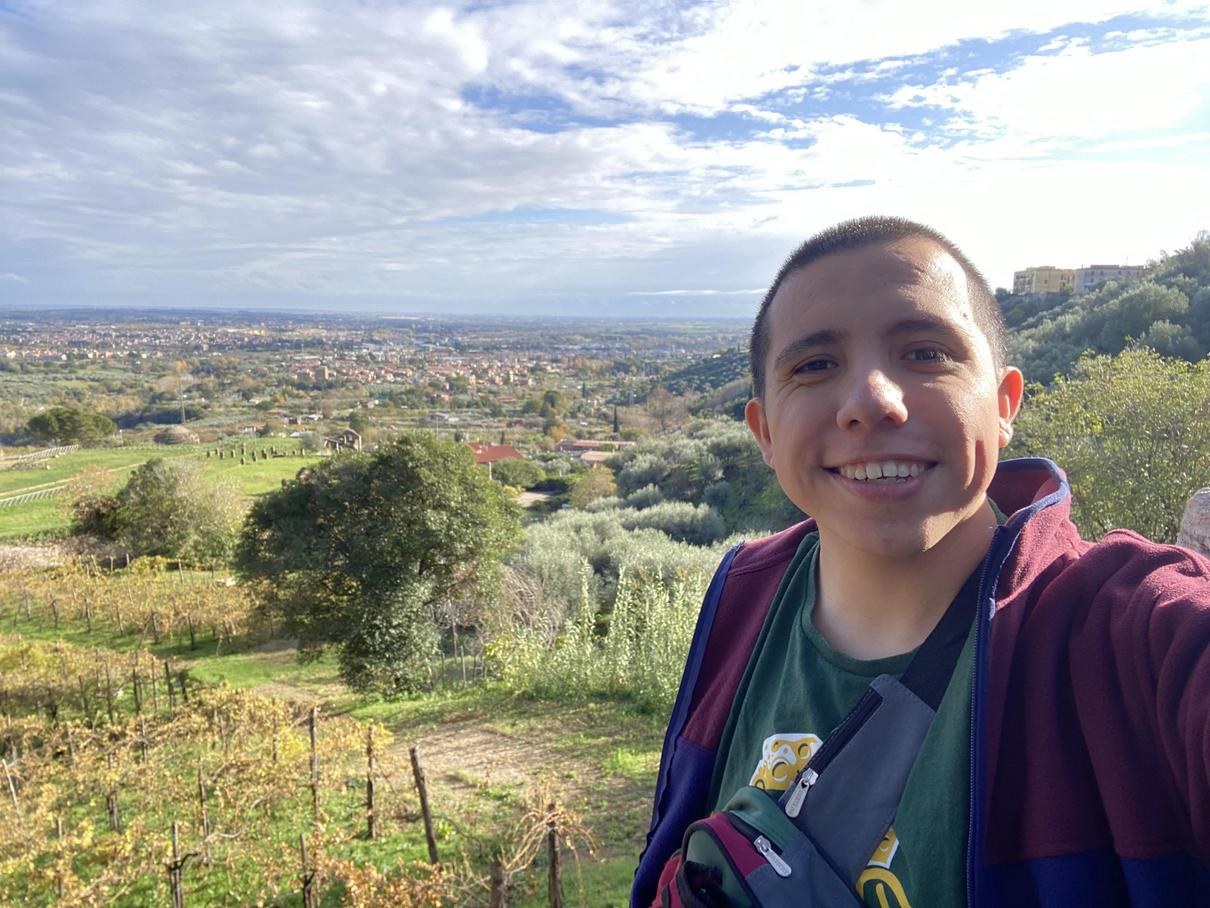

Carolina
Bill

bjohns58@depaul.edu
Marcela

Sara
storre38@depaul.edu

jpaniag5@depaul.edu
Sunidhi